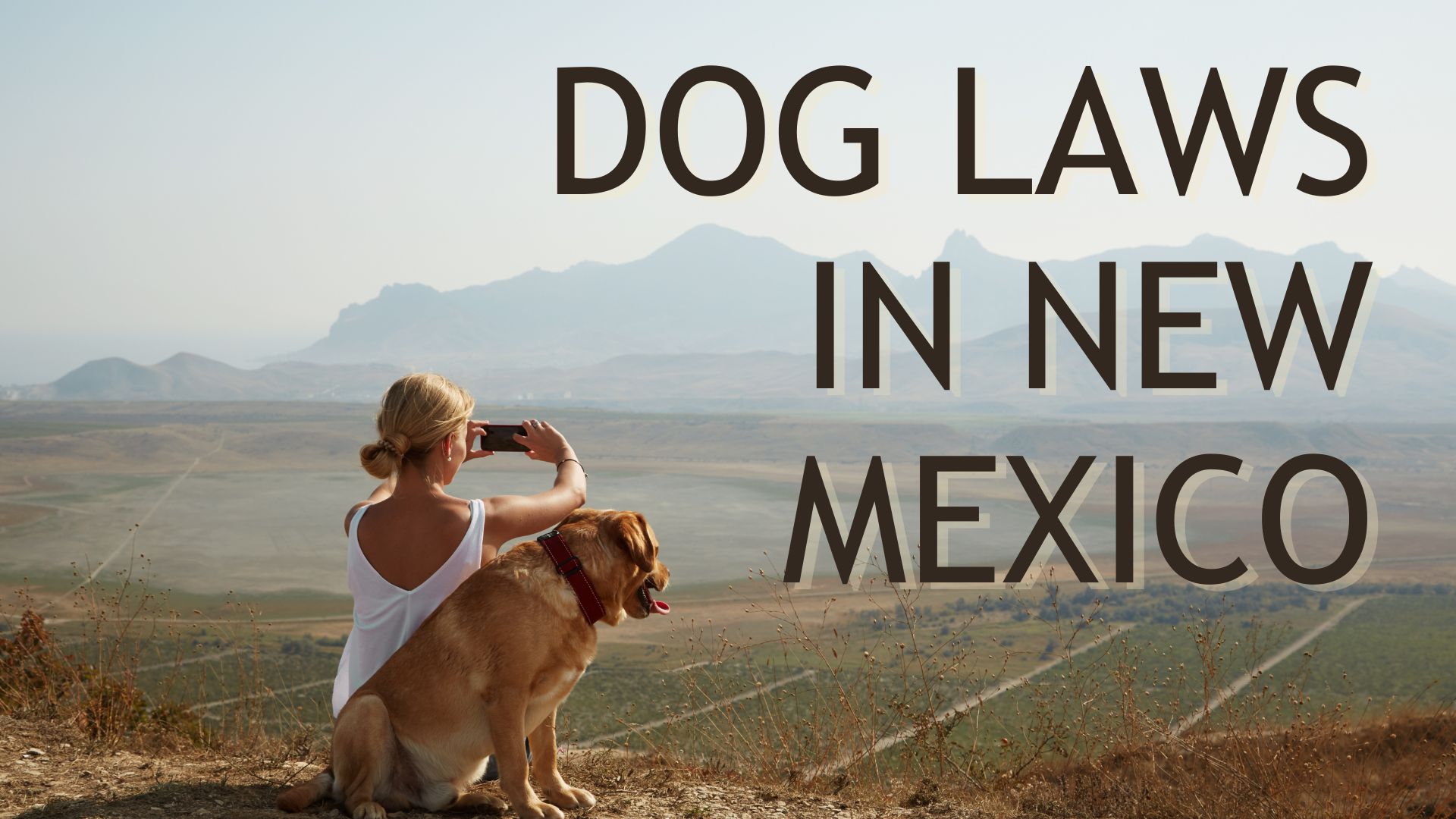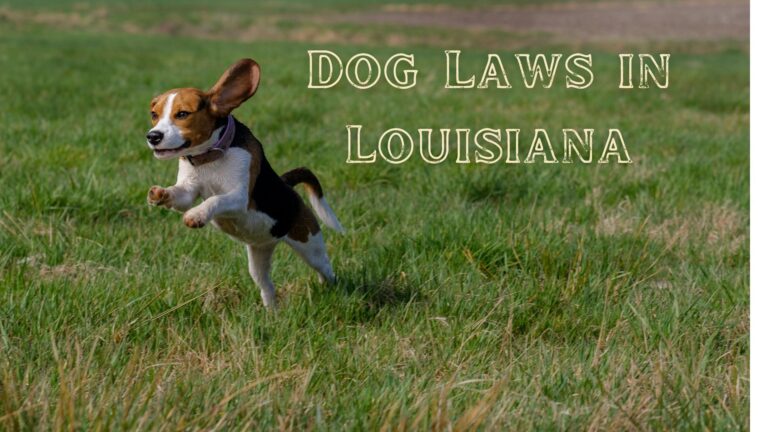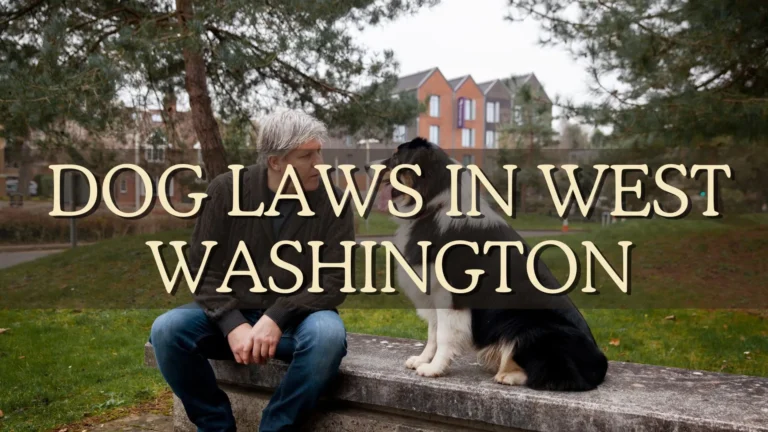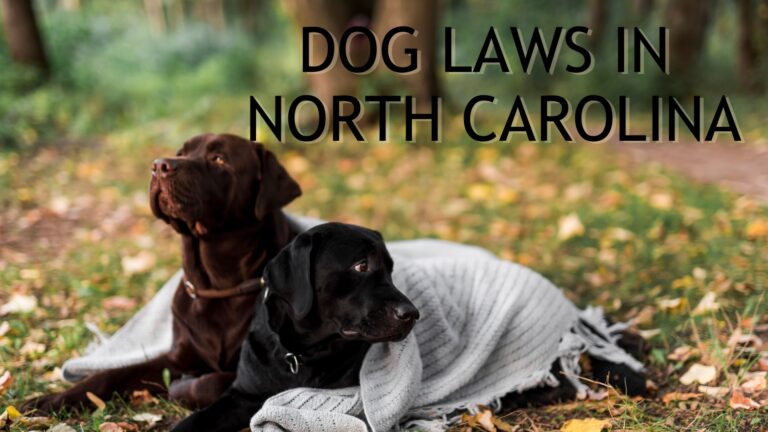Dog Laws in New Mexico
As a veterinarian, I’ve seen firsthand the joy dogs bring to people’s lives. With over 85 million pet dogs in the US alone, it’s no surprise so many of us share our homes with these furry companions. But beyond the cuddles and playtime, there’s a world of rules to navigate when it comes to responsible dog ownership.
Understanding Dog Laws in New Mexico, and across the country, is crucial for ensuring the safety and well-being of both your canine friend and your community. These laws cover a wide range, from leash requirements and licensing to vaccination schedules and regulations around dangerous dogs.
By familiarizing yourself with these regulations, you can ensure your dog stays healthy, happy, and out of trouble, allowing you to focus on building that special bond with your furry best friend.
Table of Contents
Dog Bite Laws in New Mexico
Owning a dog in New Mexico is a rewarding experience, but with furry friends comes responsibility. A crucial aspect of responsible ownership is understanding the legalities surrounding dog bites. Unlike some states with specific dog bite statutes, New Mexico operates under a different system. Let’s delve into the world of dog bite laws in the Land of Enchantment to ensure both your canine companion and the community stay safe.

The “One-Bite Rule” and Beyond
New Mexico follows the common law principle known as the “one-bite rule.” This rule doesn’t literally mean a dog gets a free pass after one bite. Instead, it focuses on the owner’s knowledge of their dog’s vicious propensities. Here’s the breakdown:
- Scienter: This legal term translates to “knowledge.” In the context of dog bites, it means the owner knew or should have known their dog had a propensity for biting or acting aggressively.
- Prior Bites or Aggressive Behavior: Evidence of past biting incidents or documented aggressive behavior significantly strengthens a claim against the owner. This could include growling, snapping, or lunging behavior.
- Strict Liability vs. Negligence: If the owner knew of their dog’s dangerous tendencies, they might be held strictly liable for damages caused by a bite, regardless of negligence. In cases where the owner wasn’t aware, negligence might come into play. This means the injured party would need to prove the owner failed to take reasonable precautions to prevent the bite.
Uniform Jury Instruction
While New Mexico doesn’t have a specific dog bite statute, there’s a crucial guideline courts use: the Uniform Jury Instruction (UJI) 13-506. Here’s the key takeaway:
- Owner’s Liability: The dog owner is liable for damages directly caused by the dog if they knew or should have known the dog was vicious or had a tendency to be vicious.
- Exceptions to Liability: The owner might not be liable if the injured person:
- Knew of the dog’s vicious tendencies.
- Provoked the dog.
- Intentionally put themselves in harm’s way.
Additional Considerations
Understanding dog bite laws goes beyond just the “one-bite rule” and UJI. Here are some additional factors to consider:
- Leash Laws and Local Ordinances: Many New Mexico cities and counties have leash laws mandating dogs be restrained in public spaces. Failure to comply can result in fines or even impoundment of the dog. Be sure to check your local ordinances for specific leash requirements.
- Vaccinations: New Mexico requires all dogs over four months old to be vaccinated against rabies. Up-to-date vaccinations are crucial not only for your dog’s health but also for potential legal defense in a bite case.
- Dangerous Dog Designation: If your dog displays a severe bite history or poses a serious threat, local animal control might designate it as “dangerous.” This designation comes with stricter regulations like muzzling, secure enclosures, and potential liability insurance requirements.
What to Do After a Dog Bite
If you’re unfortunately involved in a dog bite incident, here are some crucial steps:
- Seek Medical Attention: This is your top priority. Get any injuries treated promptly and document the bite with photos and medical records.
- Report the Bite: Report the incident to animal control to initiate an investigation.
- Gather Information: Get the dog owner’s contact information and, if possible, witness statements.
- Consider Legal Consultation: If the bite is severe, consider consulting a lawyer experienced in dog bite cases. They can advise you of your legal options and help navigate the process.
A Community Effort
Dog bites are preventable. Here’s what responsible dog owners can do:
- Proper Training and Socialization: Invest in training your dog to understand basic commands and proper behavior around people and other animals. Socialize your dog from a young age to ensure they feel comfortable in different situations.
- Secure Enclosures: Make sure your dog has a secure enclosure to prevent escape and potential encounters with people or other animals outside your property.
- Responsible Leashing: Always leash your dog in public spaces as required by local ordinances.
- Recognize Signs of Aggression: Learn to recognize signs of stress or anxiety in your dog and avoid situations that might trigger aggression.
Dog Barking and Noise Laws in New Mexico
New Mexico’s vibrant landscapes and friendly communities make it a great place for dog lovers. However, even the most adorable pup can become a neighborhood nuisance with excessive barking. To ensure your furry friend enjoys life in the Land of Enchantment without ruffling feathers, understanding dog barking and noise laws is crucial.
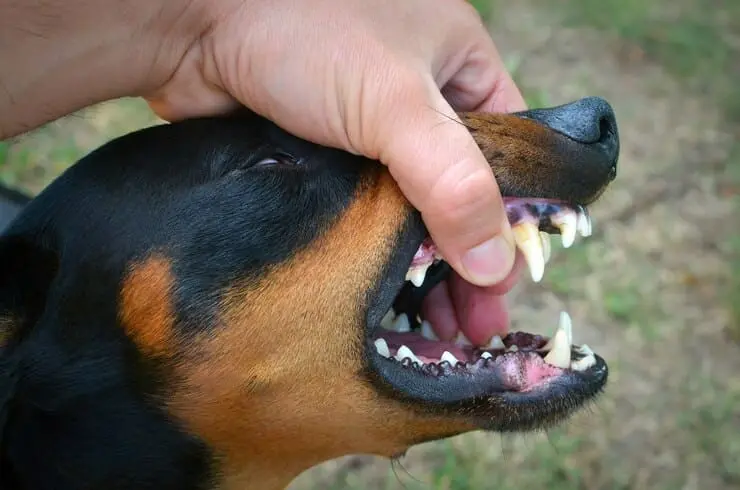
Statewide Regulations
Unlike some states with specific dog barking statutes, New Mexico doesn’t have a statewide law addressing canine noise. This means regulations primarily fall under the jurisdiction of individual cities and counties. While there’s no one-size-fits-all approach, most municipalities have ordinances addressing excessive animal noise, including barking dogs.
Delving into Local Ordinances
The key to navigating dog barking laws lies in understanding your specific location. Here’s how to find the relevant regulations:
- City or County Website: Many municipalities have their animal control ordinances readily available online. Look for sections pertaining to animal noise or barking dogs.
- Contact Animal Control: Don’t hesitate to contact your local animal control office directly. They can provide clear information on the specific barking regulations in your area.
Common Themes in Local Ordinances
While local ordinances vary, some general themes emerge regarding excessive dog barking:
- Duration and Frequency: Most ordinances define excessive barking as a continuous or frequent duration exceeding a set time limit. This could range from 10-15 minutes uninterrupted barking to repeated barking throughout the day or night.
- Reasonableness: The concept of “reasonableness” often plays a role. Barking triggered by mail delivery, unfamiliar noises, or perceived threats is generally considered acceptable within reasonable limits. However, prolonged barking due to boredom, neglect, or lack of training can be deemed a violation.
- Nighttime Restrictions: Many ordinances have stricter limitations on barking during nighttime hours, acknowledging the need for peaceful sleep.
Consequences of Ignoring the Barking
Ignoring barking complaints can lead to progressive consequences, including:
- Warnings: Animal control typically issues a warning for the first offense, providing an opportunity to address the issue.
- Fines: Repeated violations can result in fines, with escalating amounts for subsequent offenses.
- Animal Impoundment: In severe cases, animal control may impound the dog until the owner addresses the barking problem and potentially pays associated fees.
Preventing the Barking Uproar
The good news is that excessive barking is often preventable. Here are some ways to keep your dog happy and your neighbors content:
- Address Underlying Causes: Excessive barking can stem from boredom, anxiety, separation anxiety, or a medical condition. Address the root cause by providing ample exercise, mental stimulation, proper training, and addressing any potential medical concerns.
- Training and Desensitization: Train your dog basic commands like “quiet” and reward them for appropriate behavior. Utilize desensitization techniques to help them acclimate to triggers that may cause barking.
- Provide Enrichment: Combat boredom, a significant barking trigger, by offering interactive toys, puzzle feeders, and regular walks or playtime to keep your dog mentally and physically stimulated.
- Consider Bark Collars (Consult with Trainer): Electronic bark collars can be a tool, but use them with caution and only under the guidance of a qualified dog trainer to ensure they’re used humanely and effectively.
- Ensure Proper Confinement: If your dog spends extended periods outdoors, provide a secure enclosure that prevents boredom-induced barking and ensures they don’t disturb neighbors.
Responsible Dog Ownership
By understanding dog barking and noise laws in your area, combined with proactive steps to minimize excessive barking, you can ensure your dog thrives in a happy and enriching environment while fostering a peaceful relationship with your neighbors. Remember, responsible dog ownership is a cornerstone of a harmonious community where everyone can enjoy the company of canine companions.
Additional Resources
- Consider contacting your local chapter of the American Kennel Club (AKC) or other reputable dog training organizations for resources and training programs to address barking issues.
- The National Association of Animal Control Officers (NAACO) offers resources and information on animal control regulations across the country.
Dog Poop Disposal Laws in New Mexico
New Mexico’s stunning landscapes and welcoming communities make it a haven for dog lovers. However, responsible dog ownership extends beyond walks and playtime. One crucial aspect often overlooked is the proper disposal of dog waste. Leaving dog poop behind isn’t just unpleasant; it can be a health hazard and a violation of local ordinances. Let’s delve into dog poop disposal laws in New Mexico to ensure your furry friend enjoys the Land of Enchantment while keeping your community clean and healthy.

Local Ordinances
Unlike some states with specific statutes governing dog waste disposal, New Mexico lacks a statewide law. The responsibility for regulating dog poop disposal falls primarily on individual cities and counties. While there’s no single, uniform approach across the state, most municipalities have ordinances mandating the responsible disposal of dog waste.
City and County Ordinances
Knowing the specific dog poop disposal laws in your area is key to responsible ownership. Here’s how to find the relevant regulations:
- City or County Website: Many municipalities make their animal control ordinances readily available online. Look for sections pertaining to pet waste disposal or pooper scooping requirements.
- Contact Animal Control: Don’t hesitate to reach out to your local animal control office. They can provide clear information on the specific dog poop disposal regulations in your area.
Common Themes in Local Ordinances
Although local ordinances vary, some general themes emerge regarding dog waste disposal:
- Carrying Bags: Most ordinances mandate dog owners carry appropriate bags to collect and dispose of their dog’s waste.
- Immediate Disposal: Leaving dog waste behind is typically prohibited. Ordinances usually require immediate disposal in designated waste receptacles or by properly bagging and disposing of it in a trash can.
- Public vs. Private Property: While some ordinances focus on public spaces, others extend the responsibility to private property if it’s visible from public areas. Always check the specifics of your local ordinance.
Consequences of Not Scooping the Poop
Ignoring dog waste disposal laws can lead to progressive consequences:
- Warnings: Animal control typically issues a warning for the first offense, providing an opportunity to rectify the situation.
- Fines: Repeated violations can result in fines, with escalating amounts for subsequent offenses.
- Community Service: Some municipalities may require community service for repeat offenders to clean up dog waste in public spaces.
The Importance of Responsible Dog Ownership
Dog poop disposal goes beyond avoiding fines. Here’s why responsible scooping is crucial:
- Public Health: Dog waste can harbor harmful bacteria and parasites that pose a risk to humans and other animals. Proper disposal helps maintain a healthy environment for everyone.
- Water Quality: Left uncollected, dog waste can wash into storm drains and pollute waterways, impacting aquatic life and drinking water sources.
- Community Harmony: Dog waste left behind is unpleasant and disrespectful to fellow dog owners and community members. Responsible scooping fosters a cleaner and more enjoyable environment for everyone.
Tools and Techniques for a Poop-Free Life
Here’s how to make scooping the poop a breeze for you and your furry friend:
- Invest in Poop Bags: Biodegradable poop bags are readily available at pet stores and online retailers. Opt for sturdy, leak-proof options for a mess-free experience.
- Carry a Dispenser: Attach a poop bag dispenser to your leash for easy access during walks.
- Double-Bagging for Extra Security: Consider double-bagging, especially if dealing with large dogs or loose stools, for added protection and odor control.
- Dispose of Waste Properly: Tie the bag securely and dispose of it in a designated dog waste receptacle, if available, or a trash can.
Building a Poop-Free New Mexico
By understanding dog poop disposal laws and making responsible scooping a habit, dog owners can contribute significantly to a cleaner, healthier New Mexico. Here’s how you can be a leader in promoting responsible pet ownership:
- Lead by Example: Always carry poop bags and demonstrate proper scooping behavior during walks.
- Educate Others: Encourage fellow dog owners to understand and comply with local poop disposal laws.
- Advocate for Dog Waste Receptacles: If your community lacks designated waste receptacles, consider working with local authorities or community organizations to install them in parks and other frequented areas.
Dog Licensing Laws in New Mexico
New Mexico boasts breathtaking landscapes and a welcoming atmosphere, making it a haven for dog lovers. Responsible dog ownership, however, goes beyond providing walks and playtime. A crucial aspect often overlooked is dog licensing. This seemingly simple step carries significant benefits for both your furry friend and your community. Let’s explore the dog licensing laws in New Mexico, ensuring your canine companion enjoys life in the Land of Enchantment while remaining compliant with regulations.

Understanding the Statewide Framework
Unlike some states with a centralized dog licensing system, New Mexico operates with a decentralized approach. This means the responsibility for dog licensing falls primarily on individual cities and counties. While there’s no single, uniform law across the state, most municipalities have ordinances mandating dog licensing.
City and County Ordinances
Knowing the specific dog licensing requirements in your area is key to responsible pet ownership. Here’s how to find the relevant regulations:
- City or County Website: Many municipalities make their animal control ordinances readily available online. Look for sections pertaining to dog licensing or pet registration.
- Contact Animal Control: Don’t hesitate to reach out to your local animal control office. They can provide clear information on the specific dog licensing regulations in your area, including fees, renewal processes, and any exemptions.
Common Threads in Local Ordinances
While local ordinances vary, some general themes emerge regarding dog licensing:
- Age Requirement: Most municipalities require dog licenses for all dogs exceeding a certain age, typically three or four months old.
- Licensing Process: The process usually involves submitting an application form, proof of rabies vaccination, and paying a licensing fee.
- Renewal Frequency: Licenses typically require annual renewal, with some offering options for multi-year licenses.
Benefits of Dog Licensing
Dog licensing goes beyond simply fulfilling a legal obligation. Here’s why obtaining a license for your dog is crucial:
- Identification and Recovery: A dog license serves as an official identification tag. If your dog gets lost, a license significantly increases the chance of a successful reunion. The tag often displays your contact information, allowing animal control to easily reach you.
- Funding for Animal Shelters and Services: Licensing fees often contribute to the funding of local animal control services, shelters, and rabies vaccination programs. These resources help maintain animal welfare within the community.
- Tracking and Disease Control: Licensing helps authorities track dog populations and ensure proper rabies vaccination rates, contributing to public health and safety.
Consequences of Skipping the License
Failing to license your dog can lead to consequences, including:
- Fines: Animal control typically issues fines for unlicensed dogs. These fines can escalate for repeated offenses.
- Impoundment: Unlicensed dogs may be impounded by animal control until the license is obtained and associated fees are paid.
- Potential Legal Issues: In some cases, neglecting to license your dog could result in additional legal issues if your dog becomes involved in an incident.
Making Licensing Easy
Here’s how to make dog licensing a smooth and stress-free experience:
- Check with Your Local Authority: Research the specific licensing requirements and procedures in your area.
- Gather Information: Have proof of your dog’s rabies vaccination and any other required documentation readily available.
- Submit the Application: Most municipalities offer online licensing options for added convenience.
- Renew on Time: Mark your calendar or set reminders to ensure timely renewal of your dog’s license.
Building a Responsible Dog-Loving Community
By understanding dog licensing laws and making obtaining a license a priority, dog owners can contribute significantly to a safer and healthier community for all. Here’s how you can be a leader in promoting responsible pet ownership:
- Spread Awareness: Educate fellow dog owners about the importance of dog licensing and its benefits.
- Help Others: Assist those unfamiliar with the process by directing them to relevant websites or offering to help with the application.
- Advocate for Streamlined Systems: If your community lacks convenient licensing options, consider advocating for online or mail-in renewal procedures.
Dog Leash Laws in New Mexico
New Mexico’s vibrant landscapes and friendly communities make it a dream come true for dog owners. But with wide-open spaces and adventurous pups comes the question of leash laws. To ensure your furry friend enjoys the freedom to explore safely and responsibly, understanding dog leash laws in New Mexico is crucial. Let’s navigate the leash landscape in the Land of Enchantment, keeping your canine companion happy and your community safe.

The Leash on Leash Laws
Unlike some states with a statewide leash law, New Mexico operates with a decentralized approach. This means the responsibility for leash laws falls primarily on individual cities and counties. While there’s no single, uniform leash law across the state, most municipalities have ordinances mandating leash use in public spaces.
City and County Ordinances
Knowing the specific dog leash laws in your area is essential for responsible dog ownership. Here’s how to find the relevant regulations:
- City or County Website: Many municipalities make their animal control ordinances readily available online. Look for sections pertaining to dog leash laws or pet restraint requirements.
- Contact Animal Control: Don’t hesitate to reach out to your local animal control office. They can provide clear information on the specific dog leash regulations in your area, including leash length restrictions and designated off-leash areas.
Common Threads in Local Ordinances
While local ordinances vary, some general themes emerge regarding dog leash laws:
- Leash Requirement: Most municipalities require dogs to be on a leash in public spaces, like parks, sidewalks, and trails. The leash length might also be specified, with common restrictions ranging from six to eight feet.
- Voice Control Exceptions: Some ordinances allow for voice control exceptions in designated areas, where a well-trained dog can be off-leash under the owner’s immediate control. However, these areas are typically limited and require responsible ownership.
- Off-Leash Dog Parks: Many communities offer designated off-leash dog parks, allowing your pup to run freely in a safe and controlled environment. Always check park rules regarding size restrictions, vaccination requirements, and proper etiquette.
Benefits of a Leashed Life
Using a leash goes beyond just following the law. Here’s why responsible leash use is crucial:
- Safety for Your Dog: Leashes prevent your dog from running into traffic, approaching other dogs or people aggressively, or encountering potential dangers they might not recognize.
- Safety for Others: A leashed dog poses less risk of startling pedestrians, joggers, or cyclists, ensuring a peaceful and enjoyable experience for everyone using public spaces.
- Maintaining Community Harmony: Responsible leash use demonstrates respect for fellow dog owners and community members. It allows everyone to share public spaces comfortably.
Consequences of Going Rogue
Ignoring leash laws can lead to consequences, including:
- Fines: Animal control typically issues fines for unleashed dogs in public spaces. These fines can escalate for repeated offenses.
- Impoundment: Unleashed dogs may be impounded by animal control until the owner reclaims them and pays associated fees.
- Liability Issues: If your unleashed dog injures someone or another animal, you might face legal liability.
Leash Training for a Happy and Compliant Canine
Here’s how to make leash walking a positive experience for both you and your dog:
- Start Early: Begin leash training your dog when they’re young, making it a positive and rewarding experience.
- Use Positive Reinforcement: Reward good leash behavior with treats, praise, or playtime.
- Practice Makes Perfect: Regularly practice leash walking in controlled environments before venturing into public spaces.
- Choose the Right Leash: Opt for a comfortable leash of appropriate length for your dog’s size and walking style.
Building a Leashed Community
By understanding dog leash laws and making leash use a priority, dog owners can contribute significantly to a safer and more enjoyable community for everyone. Here’s how you can be a leader in promoting responsible pet ownership:
- Lead by Example: Always walk your dog on a leash in designated areas and educate others about leash laws.
- Be Patient with Others: If you encounter an unleashed dog, handle the situation calmly and respectfully.
- Advocate for Responsible Off-Leash Areas: If your community lacks designated off-leash dog parks, consider advocating for the creation of safe spaces for dogs to run freely.
Dangerous Dog Laws in New Mexico
New Mexico boasts breathtaking scenery and welcoming communities, making it ideal for dog lovers. However, responsible ownership extends beyond walks and playtime. Understanding dangerous dog laws in New Mexico is crucial to ensure the safety of your community and your furry friend. While there’s no single “dangerous dog breed” list, specific behaviors and legal processes determine if a dog is deemed dangerous. Let’s delve into the legalities surrounding dangerous dogs in the Land of Enchantment.
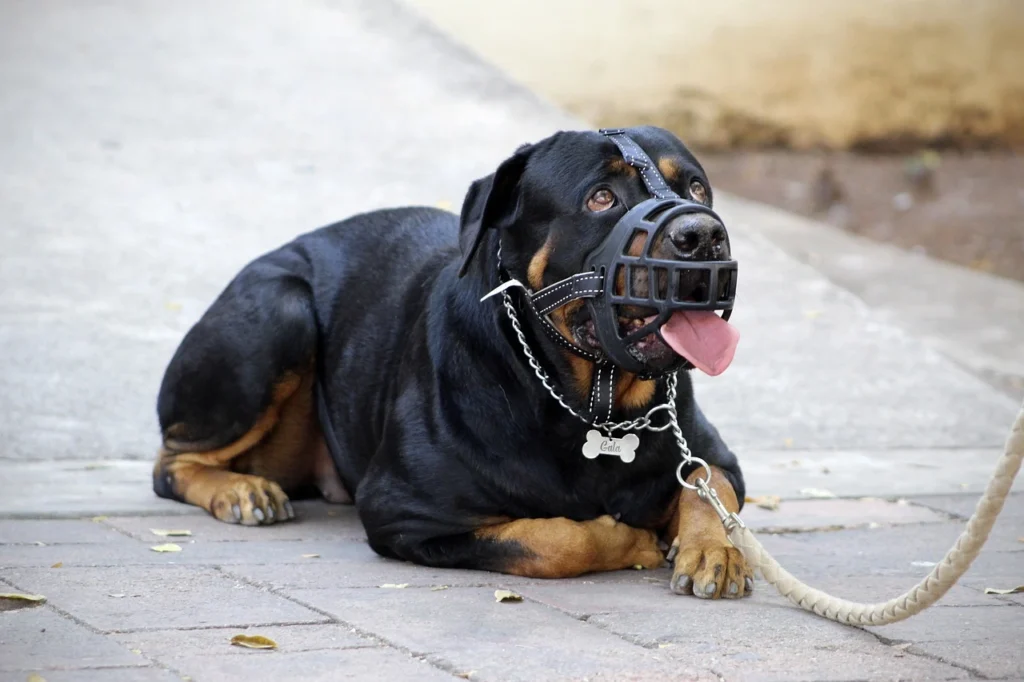
No “Pit Bull Ban”: Behavior, Not Breed, Takes Center Stage
Unlike some states with breed-specific restrictions, New Mexico focuses on a dog’s behavior rather than breed. This means any dog, regardless of breed, can be classified as dangerous if it exhibits specific aggressive tendencies.
“Dangerous” and “Potentially Dangerous”
New Mexico uses a two-tiered system to categorize potentially dangerous and dangerous dogs:
- Potentially Dangerous Dog: A dog displaying certain behaviors, such as chasing or menacing people or other animals without provocation, injuring a person or another domestic animal (less severe than a serious injury), or acting aggressively within a fenced enclosure but appearing able to jump out, might be classified as potentially dangerous.
- Dangerous Dog: A dog with a history of more serious aggression, like causing serious injury (without provocation) to a person or domestic animal, or displaying a propensity to attack unprovoked, might be designated as dangerous.
The Legal Process
The process of designating a dog as dangerous typically involves the following steps:
- Incident Report: An animal control officer investigates a reported bite or aggressive incident involving a dog.
- Evaluation: The dog may undergo an evaluation by a qualified animal behaviorist to assess its temperament and potential for future aggression.
- Hearing: A hearing is held to determine if the dog meets the criteria for potentially dangerous or dangerous designation. Dog owners have the right to present evidence and legal representation during the hearing.
Consequences of a Dangerous Dog Designation
If a dog is classified as dangerous, stricter regulations come into play:
- Muzzling and Restraint: The dog might be required to wear a muzzle and be restrained on a leash of a specific length whenever in public spaces.
- Secure Enclosure: The owner may be required to ensure the dog’s enclosure is secure enough to prevent escape and potential encounters with people or animals outside the property.
- Liability Insurance: Dangerous dog owners might be mandated to carry liability insurance to cover potential injuries caused by their dog.
- Potential Euthanasia: In severe cases with a history of serious attacks, the court might order euthanasia of the dog.
Preventing Dangerous Situations
The best way to avoid dangerous dog designations lies in responsible ownership:
- Socialization and Training: Proper socialization and obedience training from a young age can significantly reduce the risk of aggressive behavior.
- Understanding Your Dog’s Body Language: Learn to recognize signs of stress, anxiety, or potential aggression in your dog to address them before an incident occurs.
- Addressing Underlying Issues: If your dog displays concerning behavior, consult with a professional dog trainer or animal behaviorist to identify and address the root cause.
- Spay and Neuter: Spaying and neutering your dog can reduce territorial and hormonal aggression tendencies.
What to Do if Your Dog is Deemed Dangerous
If your dog receives a dangerous or potentially dangerous designation, don’t panic. Here are some steps to take:
- Seek Legal Counsel: Consult with an attorney experienced in animal law to understand your rights and options throughout the legal process.
- Appeal the Decision: You have the right to appeal the designation at a hearing by presenting evidence demonstrating your dog doesn’t pose a threat.
- Comply with Regulations: If the designation is upheld, strictly comply with all mandated regulations, like muzzling, secure enclosures, and potential liability insurance.
Building a Safe Community
Understanding dangerous dog laws and prioritizing responsible pet ownership benefits everyone. Here’s how you can contribute to a safer community:
- Report Aggressive Incidents: Don’t hesitate to report aggressive dog behavior to animal control to ensure proper investigation and potential intervention.
- Educate Yourself and Others: Familiarize yourself with dangerous dog laws in your area and share this knowledge with other dog owners.
- Advocate for Responsible Ownership: Support initiatives promoting responsible pet ownership, including spaying/neutering programs and dog training resources.
Dog Health and Welfare Laws in New Mexico
New Mexico’s stunning landscapes and welcoming communities make it a haven for dog lovers. But responsible ownership extends beyond walks and playtime. Understanding dog health and welfare laws in New Mexico is crucial to ensuring your furry friend thrives in the Land of Enchantment. While there isn’t a single, comprehensive statute solely dedicated to dog health and welfare, several laws and regulations contribute to a safe and healthy environment for canine companions.

State Statutes and Local Ordinances
New Mexico’s approach to dog health and welfare relies on a combination of state statutes and local ordinances. Here’s a breakdown of some key areas:
- Rabies Vaccinations: New Mexico has a statewide law mandating rabies vaccinations for all dogs over three months old. Local animal control ordinances typically specify vaccination frequency and enforcement procedures.
- Tethering Restrictions: Many municipalities have ordinances regulating the tethering of dogs outdoors. These ordinances often limit the duration, weather conditions, and access to food, water, and shelter when a dog is tethered.
- Adequate Shelter and Care: While there’s no single state law mandating specific shelter requirements, some local ordinances address providing adequate shelter, protection from the elements, and access to clean water for dogs kept outdoors. New Mexico’s anti-cruelty statutes also prohibit the neglect or abandonment of animals.
- Puppy Mills: While New Mexico lacks specific regulations on puppy mills, general cruelty prevention laws can be applied to address inhumane breeding practices.
The Importance of Responsible Ownership
Dog health and welfare extend far beyond legal requirements. Here’s why responsible ownership is vital:
- Preventative Care: Regular veterinary checkups, vaccinations, and parasite prevention ensure your dog stays healthy and avoids preventable illnesses.
- Proper Nutrition: Providing a balanced and age-appropriate diet is crucial for your dog’s health and well-being.
- Exercise and Enrichment: Exercise keeps your dog physically fit and mentally stimulated, reducing boredom-related behavior problems. Offer enrichment activities like toys, puzzles, and training to keep your dog engaged.
- A Safe Environment: Ensure your dog’s living space is safe and free of hazards. Consider fencing your yard and providing secure enclosures for outdoor time.
Consequences of Neglect
Ignoring animal welfare concerns can lead to legal repercussions:
- Cruelty Charges: New Mexico’s anti-cruelty statutes prohibit the infliction of unnecessary pain, suffering, or death on animals. Violations can result in fines and even jail time.
- Animal Impoundment: Animals found neglected or abandoned may be impounded by animal control, and owners may face charges and fees to reclaim their pets.
Building a Compassionate Community
By understanding dog health and welfare principles and taking responsible actions, dog owners can contribute significantly to a community that prioritizes animal well-being. Here’s how you can make a difference:
- Report Suspected Abuse: If you witness animal cruelty or neglect, don’t hesitate to report it to animal control or a local humane society.
- Support Animal Shelters and Rescues: Consider volunteering, fostering, or adopting dogs from shelters or rescues, giving animals in need a second chance.
- Advocate for Stronger Animal Welfare Laws: Stay informed about proposed animal welfare legislation and voice your support for measures that enhance the lives of dogs and other animals.
Dog Public Access Laws in New Mexico
New Mexico’s vibrant landscapes and friendly communities make it a dream destination for dog owners. But with wide-open spaces and adventurous pups comes the question of where they can go. Understanding dog public access laws in New Mexico is key to ensuring your furry friend can explore safely and responsibly while respecting the rights of others. Let’s navigate the access landscape in the Land of Enchantment, keeping your canine companion happy and public spaces welcoming for everyone.
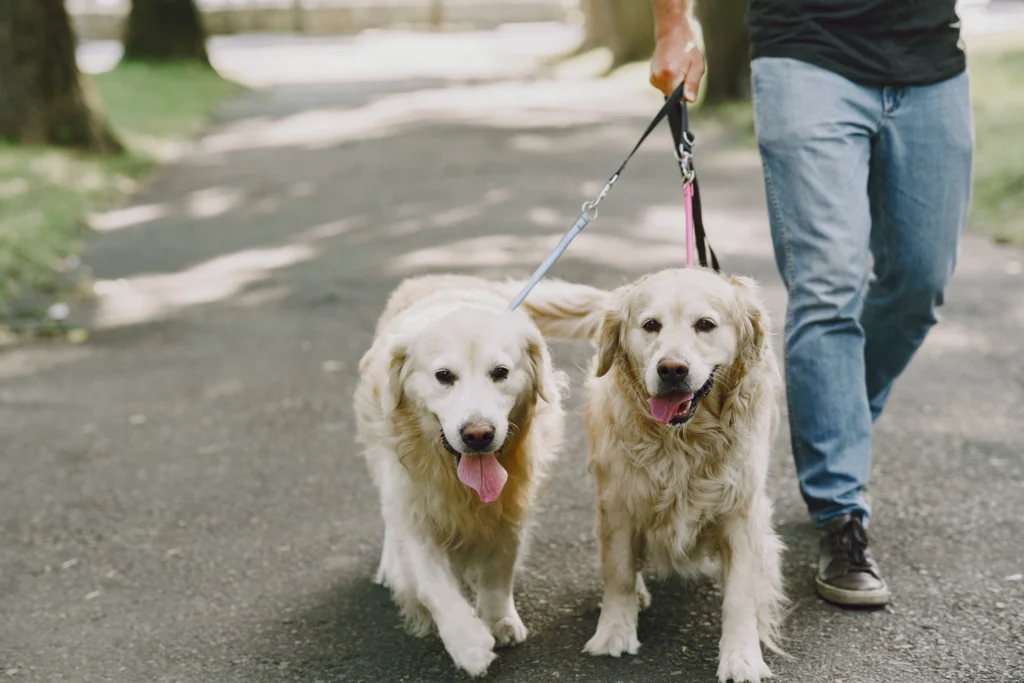
Local Control Over Public Access
Unlike some states with uniform public access laws, New Mexico operates with a decentralized approach. This means the responsibility for regulating dog access in public spaces falls primarily on individual cities and counties. While there’s no single, overarching law governing dog access, most municipalities have ordinances outlining where dogs are welcome and under what conditions.
Finding Your Local Leash Law
Knowing the specific dog public access laws in your area is essential for responsible pet ownership. Here’s how to find the relevant regulations:
- City or County Website: Many municipalities make their animal control ordinances readily available online. Look for sections pertaining to dog access in public places, dog-friendly businesses, or pet restrictions in specific areas.
- Contact Animal Control: Don’t hesitate to reach out to your local animal control office. They can provide clear information on public access regulations in your area, including designated dog parks, leash requirements in parks and trails, and any restrictions on dog access in specific businesses or public buildings.
Common Themes in Local Ordinances
While local ordinances vary, some general themes emerge regarding dog public access:
- Leash Requirements in Public Spaces: Most municipalities require dogs to be on a leash in public spaces, like parks, sidewalks, and trails. The leash length might also be specified, with common restrictions ranging from six to eight feet.
- Designated Off-Leash Dog Parks: Many communities offer designated off-leash dog parks, allowing your pup to run freely in a safe and controlled environment. Always check park rules regarding size restrictions, vaccination requirements, and proper etiquette.
- Dog-Friendly Businesses: An increasing number of businesses welcome well-behaved dogs on leashes. Look for signage indicating a business is “dog-friendly” and inquire about any specific policies they may have.
- Restrictions on Dog Access: Some areas, like playgrounds, government buildings, or public beaches, may have restrictions on dog access entirely. Always respect posted signage and leash laws when venturing into new areas with your dog.
Benefits of Responsible Public Access
Responsible public access for dogs benefits both dog owners and the community:
- Exercise and Socialization: Off-leash dog parks provide safe spaces for dogs to run, play, and socialize with other dogs, promoting physical and mental well-being.
- Economic Boost: Dog-friendly businesses attract customers who want to spend time with their furry companions, stimulating the local economy.
- Stronger Community Bonds: Shared experiences with dogs in public spaces can foster a sense of community and connection among dog owners and non-dog owners alike.
Consequences of Ignoring Public Access Rules
Disregarding public access laws can lead to consequences:
- Fines: Animal control typically issues fines for unleashed dogs in prohibited areas or businesses.
- Removal from Premises: Businesses have the right to refuse entry or ask dog owners to leave if their dog is causing a nuisance or violating their policies.
- Damage or Injury Liability: If your dog causes damage or injures someone in a public space where they weren’t permitted, you might face legal liability.
Responsible Public Access Requires Preparation
Here’s how to ensure your dog enjoys public access responsibly:
- Leash Training: Start leash training your dog early, making it a positive and rewarding experience.
- Basic Obedience Training: Teaching basic commands like “sit,” “stay,” and “come” ensures better control and a well-mannered dog in public spaces.
- Be Aware of Your Surroundings: Always keep an eye on your dog and be mindful of other people and animals when accessing public spaces.
- Clean Up After Your Dog: Always carry poop bags and dispose of your dog’s waste properly. Responsible waste management keeps public spaces clean and enjoyable for everyone.
- Respect Dog-Free Zones: Obey signage restricting dog access in certain public spaces. Respecting these boundaries ensures the safety and comfort of everyone using these areas.
Dog Travel and Transportation Laws in New Mexico
New Mexico’s breathtaking landscapes and exciting adventures beckon dog lovers and their furry companions. But before hitting the road with your canine co-pilot, it’s crucial to understand dog travel and transportation laws in the Land of Enchantment. While there aren’t specific state-wide statutes, following guidelines and best practices ensures a safe and smooth journey for you and your dog.

Essential Considerations
Here’s what to keep in mind before embarking on your New Mexico adventure with your dog:
- Vaccinations: Ensure your dog is up-to-date on all essential vaccinations, including rabies, distemper, parvovirus, and bordetella (kennel cough). Some boarding facilities and dog-friendly establishments might require documentation of vaccinations.
- Health Certificate: For interstate travel, some states might require a health certificate from a licensed veterinarian issued within 30 days of travel. Check with your destination state’s regulations for specific requirements.
- Identification: Make sure your dog wears a collar with a current ID tag displaying your contact information. Consider microchipping your dog for added security during travel.
Ensuring a Safe and Comfortable Ride
Whether exploring New Mexico’s scenic highways or venturing further afield, proper car safety is paramount for your dog:
- Secure Transportation: Don’t let your dog roam freely in the car. Use a crate or harness secured to an anchor point in the vehicle for smaller dogs. For larger dogs, consider a dog car barrier separating the cargo area.
- Climate Control: Maintain a comfortable temperature inside the car, and never leave your dog unattended in a parked vehicle, especially during extreme temperatures.
- Hydration and Breaks: Plan regular stops for your dog to relieve themselves, stretch their legs, and access fresh water.
- Travel Sickness: If your dog is prone to car sickness, consult your veterinarian for advice on preventative measures.
Air Travel with Your Canine Companion
If your New Mexico adventure involves air travel, understanding airline pet policies is essential:
- Airline Regulations: Airlines have varying pet policies regarding size, breed restrictions, and fees for transporting dogs. Research the specific airline’s pet travel program well in advance of your trip.
- Travel Crates: Most airlines require pets to travel in airline-approved crates that meet specific size and ventilation requirements.
- Health Certificates: Airlines might require a health certificate issued by a licensed veterinarian within a specific timeframe before your flight.
- Airport Procedures: Familiarize yourself with the airport’s pet check-in procedures, including documentation requirements and potential wait times.
Public Transportation and Dog Travel
While some public transportation options, like buses or trains, might allow dogs under specific circumstances, restrictions are common. Always research the specific policies of the public transportation provider you plan to use.
New Mexico’s Dog-Friendly Accommodations:
New Mexico offers a growing number of pet-friendly lodging options, from hotels and vacation rentals to campgrounds and bed and breakfasts. When booking your stay, inquire about pet fees, size restrictions, and any specific pet policies they may have.
Beyond the Regulations
Following these additional tips ensures a stress-free and enjoyable travel experience for both you and your dog:
- Familiarization: If your dog hasn’t traveled much, gradually acclimate them to car rides or their travel crate before embarking on longer journeys.
- Comfort and Entertainment: Pack familiar toys, blankets, and treats to make your dog feel comfortable and provide some entertainment during travel.
- Exercise: Factor in opportunities for your dog to exercise and relieve themselves during your trip.
Building Pawsitive Travel Memories
By understanding dog travel and transportation considerations, you can ensure a safe and enjoyable travel experience for your furry friend in New Mexico. Here are some additional ways to be a responsible dog traveler:
- Respect Dog-Free Zones: Not all establishments welcome dogs. Always confirm a place is dog-friendly before bringing your canine companion.
- Clean Up After Your Dog: Maintain responsible pet ownership by cleaning up after your dog during rest stops or while exploring dog-friendly destinations.
- Be Mindful of Others: Respect fellow travelers and be mindful of your dog’s behavior in public spaces.
Dog Housing and Accommodation Laws in New Mexico
New Mexico’s vibrant communities and stunning landscapes beckon dog lovers seeking adventure with their furry companions. But before settling into your dream New Mexico digs, understanding dog housing and accommodation laws is crucial for a smooth transition. While there isn’t a single, comprehensive law governing dogs in housing, federal and local regulations come into play to ensure fair treatment for both dog owners and landlords. Let’s explore the legalities of dog-friendly housing in the Land of Enchantment, ensuring your pup finds a comfortable and legal place to call home.

The Fair Housing Act (FHA)
The federal Fair Housing Act (FHA) prohibits discrimination in housing based on several factors, including disability. This holds significant implications for dog owners with disabilities who rely on service animals or emotional support animals (ESAs) for their well-being.
- Service Animals: The FHA defines service animals as dogs (and miniature horses in some cases) individually trained to perform tasks for people with disabilities. These tasks can range from mobility assistance to seizure alert. Landlords are legally obligated to provide reasonable accommodations for service animals, meaning they cannot deny housing based on a service animal or charge additional fees (pet deposits or rent) solely due to the presence of a service animal.
- Emotional Support Animals (ESAs): While not covered under the service animal provisions of the FHA, ESAs can be protected under the Fair Housing Act’s disability-related accommodation clause. ESAs provide emotional support, alleviating symptoms of anxiety, depression, or other mental health conditions. Unlike service animals, ESAs don’t require specific training to perform tasks. Landlords can request documentation from a licensed mental health professional to verify the need for an ESA but cannot deny housing solely based on an ESA. They may also have the right to impose reasonable restrictions, such as size or breed limitations, as long as these restrictions don’t effectively deny housing to those who rely on ESAs.
Understanding Local Ordinances
While the FHA provides a baseline for fair housing with service animals and ESAs, local ordinances can offer additional clarity or regulations. Here’s how to find relevant local information:
- City or County Website: Many municipalities make their animal control ordinances readily available online. Look for sections pertaining to pet restrictions in housing or limitations on service animals/ESAs.
- Contact Fair Housing Organizations: Fair housing organizations can provide guidance on your rights and responsibilities as a dog owner seeking pet-friendly housing.
Navigating the World of Landlords and Pet Policies
Here are some key things to keep in mind when searching for dog-friendly housing in New Mexico:
- Read the Lease Carefully: Landlord pet policies are typically outlined in the lease agreement. Be sure to understand any breed restrictions, size limitations, number of pets allowed, and associated fees (pet deposits or pet rent).
- Documentation for Service Animals and ESAs: For service animals, have documentation from a licensed healthcare professional readily available to verify the animal’s training and role in assisting your disability. For ESAs, obtain a letter from a licensed mental health professional verifying the need for emotional support.
- Open Communication is Key: Communicate openly with your landlord about your dog, especially if it’s a service animal or ESA. Provide any necessary documentation and be prepared to answer questions regarding your dog’s temperament and behavior.
Responsible Dog Ownership in Housing
Following responsible pet ownership practices goes a long way in maintaining a positive relationship with your landlord and creating a harmonious environment for everyone:
- Proper Pet Care: Ensure your dog is well-behaved, up-to-date on vaccinations, and properly socialized.
- Waste Management: Be a responsible pet owner by promptly cleaning up after your dog both inside and outside your residence.
- Minimize Noise: Train your dog to minimize barking or disruptive behavior that could disturb neighbors.
Consequences of Ignoring Housing Regulations
Ignoring dog housing regulations can lead to consequences:
- Eviction: Landlords can pursue eviction if you violate the terms of your lease agreement regarding pets. This could include exceeding pet limits, harboring an unapproved breed, or causing damage due to your dog.
- Fines or Fees: Landlords might impose fines for violations of pet policies, such as exceeding pet limits or neglecting to clean up after your dog.
Dog Adoption and Sale Laws in New Mexico
New Mexico’s vibrant communities and wide-open spaces make it a dream come true for dog lovers seeking to welcome a canine companion into their lives. Whether you’re considering adopting a furry friend from a shelter or purchasing a pup from a breeder, understanding dog adoption and sale laws in the New Mexico is crucial. While there isn’t a single, overarching statute governing dog adoption and sale, various regulations and best practices ensure responsible pet acquisition and protect animal welfare.
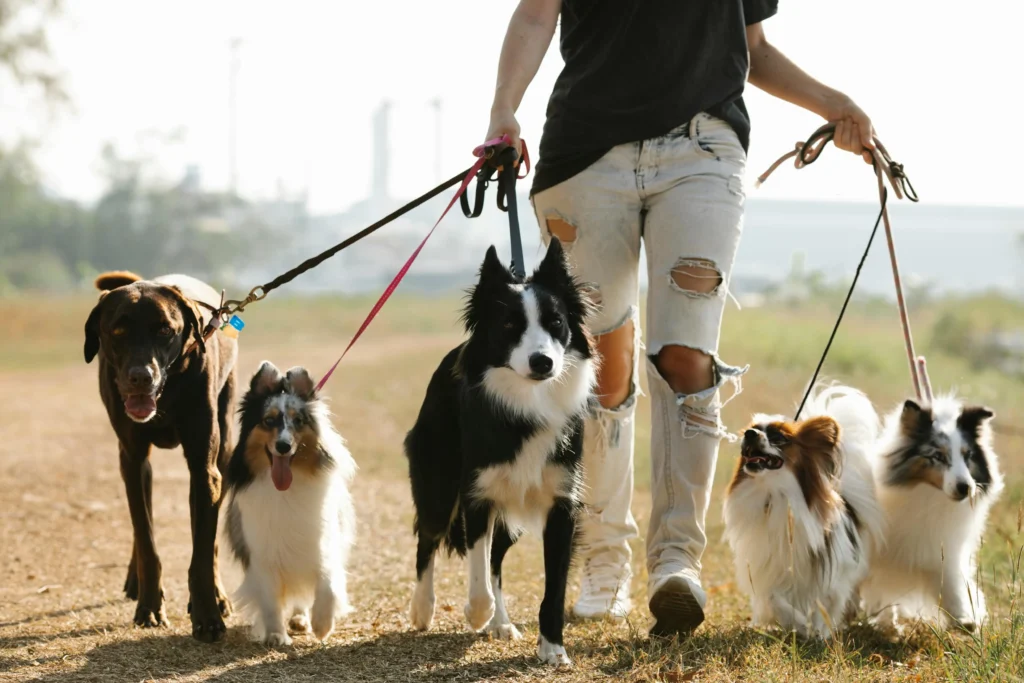
Giving a Shelter Dog a Second Chance
Many wonderful dogs await loving homes in shelters and rescue organizations across New Mexico. If you’re considering adoption, here’s what to know:
- Shelter Regulations: Animal shelters in New Mexico typically operate under local ordinances or state regulations set by the New Mexico Department of Agriculture (NMDA). These regulations can encompass shelter standards, animal care protocols, and adoption procedures.
- Adoption Process: Each shelter might have a slightly different adoption process. This typically involves an application, reference checks, a meet-and-greet with the dog, and adoption fees. Shelters often require spaying or neutering as part of the adoption agreement.
- Benefits of Adoption: Choosing adoption offers a loving home to a deserving dog in need. Shelter dogs come in all breeds, ages, and personalities. Adoption fees are typically lower than purchasing from a breeder.
Responsible Dog Acquisition
If you’re looking for a specific breed, purchasing from a reputable breeder might be the right choice. Here’s how to find a responsible breeder:
- Kennel Club Recommendations: The American Kennel Club (AKC) offers resources for finding reputable breeders who adhere to breed standards and ethical breeding practices.
- Health Testing: Responsible breeders ensure their breeding stock undergoes health testing to reduce the risk of genetic disorders in puppies.
- Transparency and Openness: Reputable breeders welcome questions about their breeding practices, health testing of parents, and puppy socialization. They should be able to provide documentation of vaccinations and pedigree (if applicable).
- New Mexico Pet Shops and Puppy Mills: While some pet shops in New Mexico might sell puppies, be cautious. These puppies often come from puppy mills, notorious for prioritizing profit over animal welfare. Consider adopting from a shelter or reputable breeder instead.
Minimum Standards for Both Adoption and Sales
While there isn’t a single, comprehensive law outlining dog adoption and sale regulations in New Mexico, several key areas are addressed:
- Vaccinations: Most shelters and reputable breeders require puppies to be up-to-date on age-appropriate vaccinations before adoption or sale.
- Spaying and Neutering: Many shelters require spaying or neutering as part of the adoption agreement. Reputable breeders might encourage spaying or neutering after a certain age, but it’s not always mandatory.
- Record Keeping: Shelters and breeders are typically required to maintain records of animal origins, vaccinations, and ownership transfers.
Responsible Pet Ownership Practices
Following responsible pet ownership practices is crucial, regardless of how you acquire your dog:
- Meeting Your Dog’s Needs: Provide your dog with proper food, exercise, mental stimulation, and veterinary care throughout its life.
- Training and Socialization: Invest in training your dog for good behavior and basic commands. Socialize your dog from a young age to ensure they feel comfortable in various situations and around different people and animals.
- A Lifetime Commitment: Adopting or buying a dog is a lifelong commitment. Be prepared to provide love, care, and financial responsibility for your furry friend well into its senior years.
The Importance of Responsible Breeding Practices
For those considering purchasing a puppy from a breeder, choosing a responsible breeder who prioritizes animal welfare is essential:
- Selective Breeding: Responsible breeders focus on selective breeding to maintain breed standards while reducing the risk of genetic health issues.
- Proper Care of Breeding Stock: Breeding dogs should be healthy, well-socialized, and live in humane conditions.
- Transparency and Openness: Reputable breeders are open about their breeding practices and can provide documentation of health testing for breeding dogs.
Consequences of Unethical Practices
Unethical adoption or breeding practices can have consequences:
- Unhealthy Dogs: Adopting from an unregulated source or purchasing from a puppy mill can increase the risk of acquiring a dog with health problems or behavioral issues.
- Supporting Unethical Breeders: Purchasing from puppy mills perpetuates a cycle of poor animal welfare practices.
- Animal Cruelty Charges: In extreme cases, neglectful breeding practices or inhumane treatment of animals might result in animal cruelty
Dog Park and Recreation Laws in New Mexico
New Mexico’s breathtaking landscapes and abundance of outdoor activities make it a haven for dog lovers and their furry companions. But venturing into dog parks and exploring dog-friendly recreation areas requires understanding the rules of the game. This guide explores dog park and recreation laws in New Mexico, ensuring your pup enjoys safe and responsible outdoor adventures in the Land of Enchantment.

Local Control Over Dog Parks and Recreation
Unlike some states with uniform dog park regulations, New Mexico operates with a decentralized approach. The responsibility for managing dog parks and outlining dog access rules in public recreation areas falls primarily on individual cities and counties.
Here’s how to find the specific regulations for your area:
- City or County Website: Many municipalities make their animal control ordinances readily available online. Look for sections dedicated to dog parks, leash laws in parks and trails, or pet restrictions in specific areas.
- Contact Parks and Recreation Department: Local parks and recreation departments often manage dog parks and can provide detailed information about park rules, access requirements, and etiquette.
Common Themes in Local Dog Park Regulations
While local ordinances can vary, some general themes emerge regarding dog park regulations:
- Leash Laws: Most public spaces outside designated dog parks require dogs to be on a leash of a specific length, typically ranging from six to eight feet.
- Off-Leash Dog Park Designation: Many communities offer fenced-in dog parks where dogs can run freely under their owner’s supervision.
- Park Rules and Etiquette: Dog park users typically must adhere to posted park rules, which can address entry requirements (vaccination records), size restrictions for dogs, and responsible owner behavior (cleaning up after your dog, maintaining control of your dog).
- Dog-Friendly Recreation Areas: Some trails, beaches, or public spaces might allow leashed dogs, with specific regulations outlined by the managing authority.
Benefits of Utilizing Dog Parks and Dog-Friendly Recreation Areas
Dog parks and dog-friendly recreation areas offer numerous benefits for both dogs and their owners:
- Exercise and Socialization: Off-leash dog parks provide spaces for dogs to run, play, and socialize with other dogs, promoting physical and mental well-being.
- Stronger Community Bonds: Shared experiences with dogs in dog parks or on dog-friendly trails can foster a sense of community and connection among dog owners and non-dog owners alike.
- Responsible Outdoor Access: Dog-friendly recreation areas allow responsible dog owners to enjoy the outdoors with their furry companions.
Ensuring Responsible Dog Park Use
Following these practices ensures your dog has a safe and enjoyable experience at the dog park:
- Up-to-Date Vaccinations: Make sure your dog is fully vaccinated before entering a dog park. This protects your dog and other dogs from preventable diseases.
- Proper Identification: Ensure your dog wears a collar with a current ID tag displaying your contact information. Consider microchipping your dog for added security.
- Temperament Assessment: Only bring well-socialized dogs to the dog park. If your dog exhibits aggressive tendencies, consider alternative exercise options or consult a professional trainer.
- Constant Supervision: Never leave your dog unattended at the dog park. Maintain control of your dog with a leash until entering the off-leash area and keep a watchful eye on their behavior throughout your visit.
- Clean Up After Your Dog: Always carry poop bags and dispose of your dog’s waste properly. Responsible waste management keeps parks clean and enjoyable for everyone.
- Respect Other Park Users: Be mindful of other dogs and their owners. If there’s a mismatch in size, temperament, or play styles, consider waiting for a better time to enter the park.
Building Respectful Dog-Friendly Recreation Areas
By understanding dog park and recreation laws and promoting responsible dog ownership, everyone can contribute to creating welcoming and enjoyable spaces for dogs and their human companions:
- Respect Dog-Free Zones: Not all recreation areas welcome dogs. Always confirm a place is dog-friendly before bringing your canine companion.
- Advocate for Responsible Dog Ownership: Encourage fellow dog owners to follow park rules and practice responsible dog etiquette.
Dog Food and Nutrition Laws in New Mexico
New Mexico’s dog lovers shower their furry companions with affection and adventure. But nourishing your pup with a healthy diet is equally important. While there isn’t a single, comprehensive law in New Mexico specifically regulating dog food, understanding general pet food regulations and best practices ensures your dog thrives on a balanced and nutritious diet.

Federal Regulations and Consumer Awareness
Dog food safety and labeling in the United States fall under the purview of the federal Food and Drug Administration (FDA). Here’s how the FDA contributes to responsible pet food manufacturing:
- Good Manufacturing Practices (GMPs): The FDA establishes GMPs for pet food manufacturers, ensuring consistent quality and safety standards during production.
- Labeling Requirements: Pet food labels must adhere to specific regulations, including ingredients listed by weight in descending order, nutritional adequacy statements, and manufacturer contact information.
- Recalls and Enforcement: The FDA has the authority to recall pet foods that pose a safety risk and take action against manufacturers who violate regulations.
Decoding the Ingredients List
While the FDA mandates labeling requirements, deciphering the information on a dog food bag can be challenging. Here’s how to navigate the dog food label:
- AAFCO Statements: Look for the Association of American Feed Control Officials (AAFCO) statement on the label. AAFCO establishes nutrient profiles for different dog life stages and activity levels, ensuring the food meets basic nutritional requirements.
- Ingredient Breakdown: The ingredients list provides valuable insights. Meat sources should be listed first, followed by grains, vegetables, and other components. Research unfamiliar ingredients to understand their nutritional value.
- Guaranteed Analysis: This section displays the minimum percentages of protein, fat, fiber, and moisture content in the food.
Choosing the Right Food for Your Dog
Selecting the right dog food goes beyond regulations. Consider these factors for your pup’s optimal health:
- Age and Activity Level: A growing puppy requires different nutrients than a senior dog. Active dogs need higher calorie content than their less active counterparts.
- Breed-Specific Needs: Certain breeds might have specific dietary requirements due to size, metabolism, or potential health concerns.
- Dietary Sensitivities: Some dogs have food allergies or sensitivities. Opt for a limited ingredient diet or consult your veterinarian for guidance.
The Role of Veterinarians in Dog Nutrition
Veterinarians play a crucial role in ensuring your dog receives proper nutrition:
- Nutritional Guidance: Consult your veterinarian for advice on selecting a dog food that aligns with your dog’s specific needs and health conditions.
- Addressing Weight Management: Veterinarians can help create a weight management plan if your dog is overweight or obese, recommending appropriate food choices and portion control.
- Monitoring for Nutritional Deficiencies: Regular veterinary checkups can identify potential nutritional deficiencies early on, allowing you to adjust your dog’s diet accordingly.
Responsible Dog Ownership
Beyond legal requirements, responsible dog ownership practices ensure your dog receives a healthy diet:
- Fresh Water Access: Provide your dog with clean, fresh water at all times.
- Portion Control: Follow the feeding guidelines on the food label or consult your veterinarian to determine the appropriate amount of food for your dog’s needs.
- Avoid Table Scraps: While occasional table scraps might seem harmless, human food can be unhealthy for dogs and disrupt their balanced diet.
- Monitor Your Dog’s Weight: Regularly weigh your dog and adjust their food intake or consult your veterinarian if they seem overweight or underweight.
Consequences of Ignoring Dog Food Safety
Ignoring potential issues with dog food can have consequences:
- Nutritional Deficiencies: An imbalanced diet can lead to various health problems, including skin and coat issues, digestive problems, and even affect your dog’s energy levels and overall well-being.
- Foodborne Illness: Contaminated dog food can pose a health risk to both dogs and humans who come into contact with it.
Informed Choices for Dog Nutrition
By understanding general pet food regulations, deciphering dog food labels, and prioritizing your veterinarian’s guidance, you can ensure your dog receives a healthy and nutritious diet. Here’s how you can be a leader in promoting dog well-being:
- Educate Yourself: Stay informed about dog food recalls and potential safety concerns through reputable sources like the FDA website.
- Advocate for Transparency: Support initiatives that increase transparency in pet food manufacturing and labeling practices.
Dog Health and Veterinary Care Laws in New Mexico
New Mexico’s stunning landscapes and vibrant communities make it a haven for dog lovers and their canine companions. Ensuring your dog’s health and well-being is paramount, and understanding dog health and veterinary care laws in the Land of Enchantment plays a vital role in responsible pet ownership. While there aren’t specific state-wide statutes dictating veterinary care, several regulations and best practices contribute to a comprehensive approach to your dog’s health.

Building a Strong Foundation
Regular veterinary checkups are the cornerstone of good dog health. Here’s why prioritizing preventative care matters:
- Early Disease Detection: Routine checkups allow veterinarians to detect potential health issues in their early stages, leading to more successful treatment and improved outcomes.
- Vaccinations: Vaccinations protect dogs from preventable and potentially life-threatening illnesses like rabies, distemper, parvovirus, and bordetella (kennel cough). Some boarding facilities and dog-friendly establishments might require documentation of vaccinations.
- Parasite Prevention: Regular parasite prevention medications safeguard your dog against internal and external parasites that can cause discomfort and health problems.
- Spaying or Neutering: Spaying and neutering offer numerous health benefits for dogs, including reducing the risk of certain cancers, preventing unwanted litters, and potentially curbing behavioral problems.
Understanding Rabies Vaccination Laws
Rabies is a deadly virus that can infect mammals, including dogs. New Mexico has specific regulations regarding rabies vaccinations:
- Rabies Vaccination Requirements: All dogs three months of age or older must be vaccinated against rabies by a licensed veterinarian.
- Vaccination Frequency: Rabies vaccination requirements vary depending on the vaccine used. Consult your veterinarian about the appropriate vaccination schedule for your dog.
- Proof of Vaccination: A copy of your dog’s rabies vaccination certificate is vital for licensing purposes, boarding facilities, and dog-related events.
Additional Legal Considerations
While rabies vaccinations are legally mandated, other aspects of veterinary care fall under ethical and responsible pet ownership practices:
- Animal Cruelty Laws: New Mexico, like all states, has animal cruelty laws in place. These laws protect animals from neglect, abuse, and abandonment. If you suspect animal cruelty, it’s crucial to report it to the appropriate authorities.
- Tethering Laws: Some municipalities in New Mexico might have specific tethering laws regulating the duration and conditions under which a dog can be tethered outdoors. Check with your local animal control department for details.
Building a Trusted Partnership
Selecting a veterinarian who aligns with your values and provides quality care is essential for your dog’s well-being:
- Location and Convenience: Consider factors like proximity and clinic hours when choosing a veterinarian.
- Services Offered: Ensure the clinic offers the services you need, such as routine checkups, vaccinations, surgery, and dental care.
- Veterinarian’s Experience and Reputation: Research the veterinarian’s background and experience in treating dogs. Read online reviews or seek recommendations from friends, family, or animal shelters.
Protecting Your Pup Financially
Unexpected veterinary bills can be a financial burden. Pet insurance can help offset these costs:
- Coverage Options: Pet insurance plans vary in coverage, with options for accidents, illnesses, routine care, and even alternative therapies.
- Financial Protection: Pet insurance can provide peace of mind and help ensure your dog receives necessary veterinary care, regardless of unforeseen health issues.
Responsible Pet Ownership: Beyond Legal Requirements
Fulfilling your responsibilities as a pet owner goes beyond legal mandates:
- Providing a Healthy Diet: Choose a high-quality dog food that meets your dog’s nutritional needs based on age, activity level, and any health conditions.
- Exercise and Mental Stimulation: Regular exercise and mental stimulation are crucial for your dog’s physical and mental well-being. Tailor activities to your dog’s breed, age, and abilities.
- Safe and Clean Environment: Provide your dog with a clean and safe living environment, free from hazards and potential toxins.
The Importance of Microchipping Your Dog
Microchipping is a safe and reliable way to increase the chances of your dog being reunited with you if they get lost:
- Microchip Implantation: A veterinarian implants a tiny microchip containing your contact information under your dog’s skin.
- National Pet Registry: Register your dog’s microchip with a national pet registry, ensuring your contact information remains readily accessible.
Dog Identification and Microchipping Laws in New Mexico
New Mexico’s breathtaking landscapes and vibrant communities offer endless opportunities for exploration with your furry companion. But ensuring your dog is properly identified in case they get lost is crucial for a happy reunion. While New Mexico doesn’t have a statewide law mandating microchipping, understanding dog identification and microchipping regulations plays a vital role in responsible pet ownership.

The Power of Identification: Tags and Collars – The First Line of Defense
A collar and ID tag are the first line of defense in reuniting lost dogs with their owners:
- Durable Collar: Choose a well-fitting, durable collar made from materials like nylon or leather.
- Current ID Tag: Attach a current ID tag to your dog’s collar. The tag should display your contact information, including your name, phone number, and potentially your address.
- License Tags (Optional): While not mandatory statewide, some municipalities in New Mexico might require dog licenses. Check with your local animal control department for details. License tags often attach to your dog’s collar and provide additional identification.
Microchipping – A Permanent and Reliable Solution
Microchipping offers a permanent and reliable method for identifying lost dogs:
- Microchip Implantation: A veterinarian implants a tiny microchip, roughly the size of a rice grain, under your dog’s skin between the shoulder blades. The microchip transmits a unique identification number when scanned.
- National Pet Registry: Register your dog’s microchip with a reputable national pet registry database. This ensures your contact information is readily accessible to animal shelters, veterinarians, and other authorities who might scan your dog’s microchip.
- Benefits of Microchipping: Microchips offer several advantages over traditional identification methods. They are permanent, cannot fall off like collars or tags, and can store more information than just a name and phone number.
Understanding Microchipping Laws in New Mexico
While there isn’t a statewide law mandating microchipping for dogs in New Mexico, some municipalities or counties might have their own ordinances. Here’s how to find relevant local information:
- City or County Website: Many municipalities make their animal control ordinances readily available online. Look for sections pertaining to dog identification requirements or recommendations regarding microchipping.
- Contact Animal Control: Your local animal control department can provide details on any local ordinances regarding dog identification and microchipping.
Beyond Legal Mandates: The Importance of Responsible Pet Ownership
Fulfilling your responsibilities as a pet owner goes beyond legal requirements:
- Microchip All Dogs: Consider microchipping all your dogs, regardless of breed, age, or lifestyle. Even the most well-behaved dog can slip out of a leash or dart through an open door.
- Keep Your Contact Information Updated: Ensure the contact information associated with your dog’s microchip is current. Update your information if you move, change phone numbers, or get a new email address.
- Educate Others About Microchipping: Spread awareness about the benefits of microchipping amongst friends, family, and fellow dog owners.
The Consequences of Unidentified Lost Dogs
Unfortunately, not all lost dogs are reunited with their owners:
- Unidentified Dogs at Shelters: Lost dogs without identification tags or microchips have a lower chance of being reunited with their families. These dogs might end up in shelters for extended periods or face adoption or euthanasia.
- Increased Costs for Shelters: Unidentified lost dogs often require additional sheltering and care, placing a financial strain on already-strained animal shelters.
Responsible Dog Ownership
By understanding dog identification and microchipping practices, you can contribute to a safer environment for your dog and a more efficient system for reuniting lost pets with their families:
- Advocate for Microchipping: Support initiatives that encourage responsible pet ownership through microchipping.
- Volunteer at Animal Shelters: Consider volunteering your time at local animal shelters. Shelters often rely on volunteers to scan microchips and help reunite lost dogs with their owners.
Dog Breeding and Genetics Laws in New Mexico
New Mexico’s vibrant communities and wide-open spaces attract dog lovers seeking to welcome a furry friend into their lives. If you’re considering breeding dogs, understanding dog breeding and genetics laws in the Land of Enchantment is crucial for responsible breeding practices and animal welfare.

Local Ordinances
Unlike some states with comprehensive dog breeding regulations, New Mexico operates with a decentralized approach. The primary responsibility for regulating dog breeding falls on individual cities and counties. Here’s how to find relevant information for your area:
- City or County Website: Many municipalities make their animal control ordinances readily available online. Look for sections pertaining to dog breeding permits, kennel licensing, or regulations on breeding practices.
- Contact Animal Control: Your local animal control department can provide details on any local ordinances regarding dog breeding and can guide you through the permit application process.
General Considerations for Dog Breeding in New Mexico
While local ordinances can vary, some general themes emerge regarding dog breeding regulations:
- Breeder Permits: Many municipalities require a permit to operate a dog breeding kennel. Permits might include inspections to ensure compliance with animal welfare standards.
- Number of Breeding Dogs: Local ordinances might limit the number of breeding dogs allowed per household.
- Licensing Requirements: Some areas might require individual breeding dogs to be licensed.
- Vaccinations and Health Testing: Local regulations might mandate vaccinations for breeding dogs and encourage responsible breeders to conduct health testing for common genetic disorders in their chosen breed.
The Importance of Ethical Breeding Practices
Following responsible breeding practices goes beyond adhering to local ordinances:
- Selective Breeding: Ethical breeders strive to maintain breed standards while reducing the risk of genetic health problems.
- Health Testing of Breeding Stock: Reputable breeders ensure their breeding dogs undergo health testing to identify potential genetic disorders before breeding.
- Proper Care for Breeding Dogs: Breeding dogs should live in humane conditions with access to proper food, exercise, and veterinary care.
- Socialization of Puppies: Ethical breeders prioritize socializing puppies from a young age to ensure they are well-adjusted and comfortable in various situations.
- Transparency and Openness: Responsible breeders are open about their breeding practices, health testing results, and puppy care protocols. They should be able to provide documentation of vaccinations, pedigrees (if applicable), and answer questions about their breeding goals.
Understanding Genetics in Dog Breeding
Knowledge of canine genetics plays a crucial role in responsible breeding:
- Understanding Breed-Specific Health Concerns: Different dog breeds are predisposed to specific genetic health issues. Ethical breeders take steps to minimize the risk of passing these conditions to offspring.
- Genetic Diversity: Maintaining genetic diversity within a breed helps reduce the risk of inheritable diseases. Reputable breeders might utilize breeding strategies that incorporate dogs from different bloodlines.
- Genetic Testing: Several genetic tests are available for dogs, allowing breeders to identify carriers of specific genetic disorders and avoid breeding pairs that could produce affected puppies.
The Consequences of Unethical Breeding Practices
Unethical breeding practices can have serious consequences:
- Unhealthy Puppies: Breeding from dogs with underlying health problems increases the risk of puppies inheriting these conditions. This leads to suffering for the dogs and financial burdens for pet owners.
- Oversupply of Dogs in Shelters: Irresponsible breeding practices can contribute to the overpopulation of dogs in shelters, leading to euthanasia of healthy animals.
- Perpetuation of Breed-Specific Issues: Breeding from dogs with undesirable temperament traits can perpetuate these traits in future generations.
Building a Future of Responsible Dog Breeding
By understanding dog breeding and genetics laws and promoting ethical breeding practices, everyone can contribute to a healthier future for dogs:
- Support Reputable Breeders: Seek out and support breeders who prioritize animal welfare, health testing, and responsible breeding practices.
- Educate Yourself: Research dog breeds and the potential health concerns associated with specific breeds before considering breeding. Numerous resources are available from reputable kennel clubs and veterinary organizations.
- Consider Alternatives: Many wonderful dogs await loving homes in shelters and rescue organizations. Consider adopting a dog in need instead of breeding.
Dog Environmental Impact Laws in New Mexico
New Mexico’s stunning landscapes and abundant outdoor recreation opportunities make it a haven for dog lovers and their canine companions. However, with responsible dog ownership comes the responsibility of minimizing your dog’s environmental impact. While there aren’t specific, state-wide laws solely targeting dog waste or environmental impact, understanding best practices and existing regulations related to waste disposal and public spaces is crucial for eco-conscious dog owners.

Minimizing Waste on the Trails
Enjoying the outdoors with your dog requires responsible waste management:
- Always Carry Waste Bags: Make carrying poop bags a non-negotiable part of your dog walking or hiking routine. Choose biodegradable waste bags whenever possible.
- Proper Waste Disposal: Pick up your dog’s waste promptly and dispose of it properly in designated pet waste disposal bins. If no bins are available, pack out the waste and dispose of it at home.
- Leave No Trace Principles: Familiarize yourself with the principles of Leave No Trace, a set of outdoor ethics promoting responsible recreation. These principles include minimizing waste, respecting wildlife, and leaving the environment as you found it.
Responsible Waste Management in Public Spaces
Responsible dog waste management extends beyond designated trails:
- Scooping Up After Your Dog: Always clean up after your dog, regardless of location. This includes parks, sidewalks, and public spaces.
- Respecting Private Property: Never allow your dog to eliminate on private property without permission.
- Educating Others: Lead by example and encourage fellow dog owners to practice responsible waste management.
Leash Laws and Protecting Wildlife
Leash laws not only promote safety for your dog and others, but also play a role in environmental protection:
- Leash Laws in Public Spaces: Most public spaces in New Mexico require dogs to be on a leash of a specific length, typically ranging from six to eight feet.
- Protecting Wildlife: Keeping your dog leashed on trails helps minimize disturbances to wildlife. Wildlife might perceive off-leash dogs as threats, leading to altered behavior or potential conflicts.
- Respecting Sensitive Areas: Some areas might have restrictions on dogs altogether, such as designated wildlife refuges or areas with fragile ecosystems. Always respect posted signage and leash laws.
The Importance of Parasite Control for a Healthy Environment
Regular parasite prevention for your dog benefits both your furry friend and the environment:
- Preventing Internal Parasites: Internal parasites like roundworms and hookworms can release eggs into the environment that can pose a health risk to other animals and potentially even humans. Regular deworming medication helps prevent this.
- Controlling Ticks and Fleas: Ticks and fleas can transmit diseases to both dogs and wildlife. Using effective flea and tick prevention medication helps safeguard your dog and the environment.
- Responsible Disposal of Medication: Dispose of unused or expired parasite prevention medication according to label instructions to prevent environmental contamination.
Building a Culture of Responsible Dog Ownership
By adopting responsible practices, dog owners can significantly reduce their environmental impact:
- Spreading Awareness: Educate others about the importance of responsible dog ownership and minimizing environmental impact.
- Supporting Eco-Friendly Dog Products: Look for biodegradable poop bags, eco-friendly dog toys made from recycled materials, and natural cleaning products for dog messes.
- Advocating for Dog-Friendly Policies: Support initiatives that create more dog-friendly public spaces with designated waste disposal facilities.
Dog Behavioural Training Laws in New Mexico
New Mexico’s vibrant communities and wide-open spaces offer dog owners and their canine companions endless opportunities for adventure. But ensuring your dog thrives in various social settings requires proper training. While there aren’t specific laws in New Mexico mandating dog training, understanding the legal landscape and responsible training practices is crucial for fostering well-behaved and confident canine citizens.
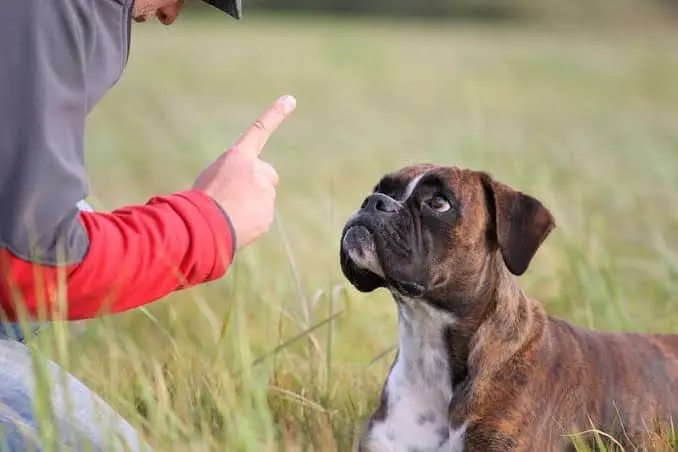
A Focus on Responsible Ownership
New Mexico, like most states, prioritizes responsible pet ownership:
- Animal Cruelty Laws: New Mexico has animal cruelty laws in place to protect animals from neglect, abuse, and abandonment. These laws define what constitutes cruelty and outline penalties for violations.
- Tethering Laws: Some municipalities in New Mexico might have specific tethering laws regulating the duration and conditions under which a dog can be tethered outdoors. Always check with your local animal control department for details.
The Importance of Positive Reinforcement Training
Positive reinforcement training prioritizes rewarding desired behaviors and offers numerous benefits:
- Stronger Bond with Your Dog: Positive training methods build trust and communication between you and your dog, strengthening your bond.
- Effective Behaviour Modification: Positive reinforcement effectively addresses unwanted behaviours like jumping, barking, or chewing.
- Focus on Communication: Positive training techniques emphasize clear communication and mutual understanding between owner and dog.
Finding the Right Dog Trainer in New Mexico
Choosing a qualified dog trainer can significantly impact your training journey:
- Certification and Experience: Look for trainers certified by reputable organizations like the Certification Council for Professional Dog Trainers (CCPDT) or the International Association of Animal Behavior Consultants (IAABC). Experience with various breeds and training styles is also essential.
- Training Philosophy: Choose a trainer who utilizes positive reinforcement methods and prioritizes humane and ethical training practices.
- Meeting Your Needs: Seek a trainer who understands your goals for your dog and can create a customized training plan.
Understanding Dog Licensing Requirements (Optional)
While not mandatory statewide, some municipalities in New Mexico might require dog licenses. These licenses often contribute to animal control efforts and might come with benefits like discounts on spaying/neutering services or rabies vaccinations. Check with your local animal control department for details.
The Role of Veterinarians in Dog Behaviour
Veterinarians play a crucial role in promoting good dog behaviour:
- Ruling Out Medical Causes: Some behavioural issues can stem from underlying medical conditions. Your veterinarian can conduct an examination to rule out any medical factors influencing your dog’s behaviour.
- Referral to a Qualified Dog Trainer: Veterinarians can often recommend a qualified dog trainer based on your dog’s specific needs and your training goals.
Building a Supportive Training Environment
Creating a supportive training environment at home sets your dog up for success:
- Consistency and Patience: Effective dog training requires consistent practice and patience from the owner.
- Positive Reinforcement: Reward desired behaviors with treats, praise, or affection. Punishment-based training methods are ineffective and can damage the bond with your dog.
- Positive Socialization: Socialization exposes your dog to different people, animals, and environments in a controlled and positive way. This helps prevent fear-based behaviours and fosters a well-adjusted canine citizen.
The Consequences of Untrained Dogs
Leaving behavioural issues unaddressed can have negative consequences:
- Safety Concerns: Untrained dogs might exhibit behaviours like aggression, barking excessively, or pulling on a leash, posing safety risks to themselves, other animals, and people.
- Stress and Anxiety: Untrained dogs may experience stress and anxiety in unfamiliar situations due to a lack of understanding of expected behaviours.
- Limited Social Interaction: Untrained dogs might struggle in social situations due to poor impulse control or fearfulness, leading to a less fulfilling life for both dog and owner.
Responsible Dog Ownership and Training
By prioritizing positive reinforcement training and responsible dog ownership, everyone can contribute to a more harmonious community for dogs and humans alike:
- Advocate for Positive Training Practices: Support initiatives that promote positive reinforcement training methods and educate others about their effectiveness.
- Join Dog Training Classes: Dog training classes offer a structured learning environment, supervised practice opportunities, and a chance to connect with other dog owners.
- Volunteer at Animal Shelters: Shelters often benefit from volunteers who can help socialize dogs and provide basic training.
Dog Protection and Rescue Laws in New Mexico
New Mexico’s captivating landscapes and welcoming communities provide a haven for dog lovers and their canine companions. Protecting the well-being of these cherished animals is paramount. While there aren’t codified dog protection and rescue statutes at the state level, a network of laws and regulations safeguards dogs and empowers rescue organizations.
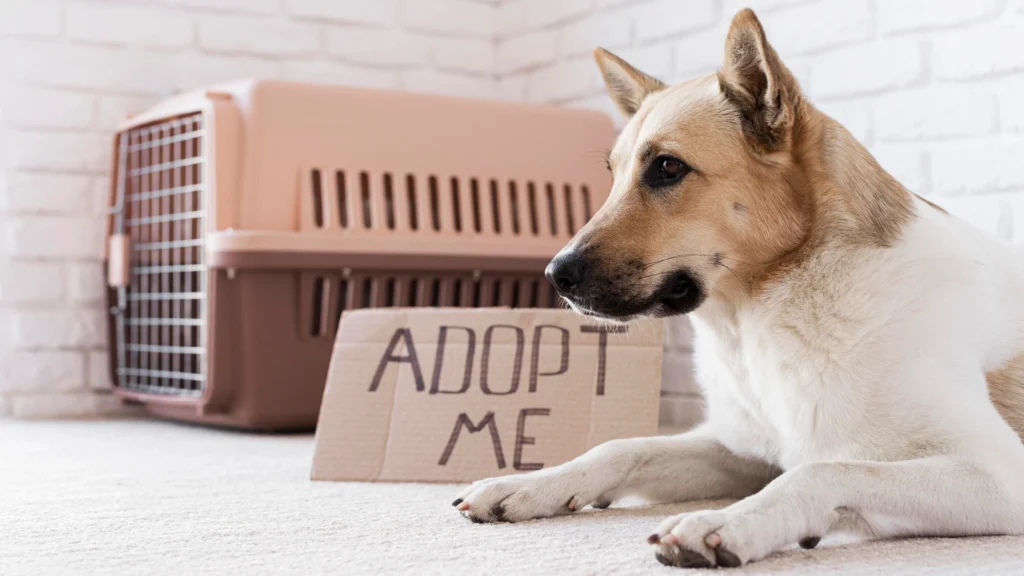
New Mexico’s Animal Cruelty Laws
New Mexico, like all states, has animal cruelty laws in place to deter abuse and neglect:
- Definition of Cruelty: These laws define acts of cruelty against animals, encompassing physical harm, neglect, abandonment, and intentional infliction of suffering.
- Reporting Requirements: Anyone suspecting animal cruelty is legally obligated to report it to the appropriate authorities, typically animal control or law enforcement.
- Penalties for Violations: Violations of animal cruelty laws can result in fines, jail time, and potential mandatory animal welfare education courses.
Understanding Your Role in Protecting Dogs
Fulfilling your responsibilities as a dog owner plays a vital role in their protection:
- Providing Adequate Food, Water, and Shelter: Dogs require proper nutrition, fresh water, and a safe and secure shelter to protect them from the elements.
- Veterinary Care: Regular veterinary checkups ensure your dog receives necessary vaccinations, parasite prevention, and treatment for any health concerns.
- Identification and Licensing (Optional): While not mandatory statewide, some municipalities might require dog licenses and ID tags. These measures help reunite lost dogs with their owners.
- Proper Confinement: Ensure your dog is properly contained within your property to prevent them from escaping and potentially facing dangers.
Beyond Cruelty: Addressing Neglect and Abandonment
Animal cruelty laws extend beyond intentional harm and encompass neglect and abandonment:
- Failure to Provide Necessities: Leaving a dog without access to food, water, or shelter constitutes neglect and violates animal cruelty laws.
- Abandonment: Abandoning a dog is illegal and can have serious consequences for the animal’s well-being.
- Tethering Laws: Some municipalities have tethering laws regulating the duration and conditions under which a dog can be tethered outdoors.
The Role of Animal Shelters in Dog Rescue
Animal shelters play a critical role in rescuing stray and abandoned dogs:
- Intake and Evaluation: Shelters receive stray and surrendered dogs, evaluate their health and temperament, and provide any necessary medical care.
- Adoption Process: Shelters work to find loving and responsible homes for the dogs in their care.
- Lost and Found Services: Shelters are a valuable resource for reuniting lost dogs with their owners.
Supporting Dog Rescue Organizations in New Mexico
Numerous dog rescue organizations operate throughout New Mexico, offering vital services:
- Rescue and Rehabilitation: These organizations rescue dogs from various situations, including abandonment, cruelty cases, or overcrowded shelters. They often provide rehabilitation and training before adoption.
- Volunteer Opportunities: Dog rescue organizations rely heavily on volunteers for tasks like dog walking, socialization, and fostering.
- Donations: Donations of financial resources, pet food, supplies, or volunteer time significantly support the work of these organizations.
Good Samaritan Laws and Animal Rights
Understanding these legal concepts can empower you to help dogs in need:
- Good Samaritan Laws: These laws generally offer some legal protection to individuals who provide emergency care to animals in distress, such as those injured in accidents.
- Animal Rights vs. Animal Welfare: Animal welfare focuses on improving the lives of animals, while animal rights advocate for their inherent rights and legal personhood. While animal rights movements aim for broader legal recognition, animal welfare laws provide immediate protections.
The Importance of Microchipping Your Dog
Microchipping significantly increases the chance of a lost dog being reunited with their owner:
- Microchip Implantation: A veterinarian implants a tiny microchip containing your contact information under your dog’s skin.
- National Pet Registry: Register your dog’s microchip with a reputable national pet registry database to ensure your information is readily accessible.
- Increased Recovery Rate: Microchips offer a permanent and reliable method for identifying lost dogs, significantly increasing the chances of a happy reunion.
Dog Entertainment and Work Laws in New Mexico
New Mexico’s captivating landscapes and vibrant culture offer endless opportunities for adventure, not just for humans but for their canine companions as well. Whether you dream of your dog gracing the silver screen or assisting you in your daily work, understanding dog entertainment and work laws is crucial for responsible pet ownership and ensuring your furry friend’s well-being.

Dog Entertainment Laws in New Mexico
While New Mexico doesn’t have specific, state-wide regulations governing dog participation in entertainment activities, several factors come into play:
- Federal Laws: The Animal Welfare Act (AWA) sets federal standards for the humane treatment of animals used in exhibition, film, and television productions. These standards outline requirements for housing, handling, training, and veterinary care.
- American Humane Society Guidelines: The American Humane Society (AHS) publishes detailed guidelines for the safe and ethical treatment of animals in film and television. Following these guidelines helps ensure your dog’s well-being during production.
- Local Permits and Regulations: Some municipalities in New Mexico might have local ordinances regarding animal exhibition or filming permits. Always check with your local animal control department for any specific requirements.
The Cornerstone of Dog Entertainment
The well-being of your dog should always be the top priority in any entertainment endeavor:
- Age and Temperament: Only consider dogs with suitable temperaments and appropriate age for the demands of entertainment work. Puppies or anxious dogs might not be a good fit for these environments.
- Training and Preparation: Thorough training and positive reinforcement methods are essential to ensure your dog can perform comfortably and safely on set.
- Humane Treatment: Never force your dog to participate in activities that cause them stress, fear, or discomfort. Prioritize breaks, provide ample water, and maintain a positive and encouraging environment.
- On-Set Supervision: A qualified animal handler or trainer should be present throughout filming to ensure your dog’s safety and well-being.
The World of Working Dogs in New Mexico
Many dogs play vital roles in various work settings across New Mexico:
- Assistance Dogs: Service dogs, guide dogs, and hearing dogs are specially trained to assist individuals with disabilities. Federal laws protect the rights of individuals with disabilities to be accompanied by their service animals in public spaces.
- Working Livestock Dogs: Herding dogs assist ranchers with managing livestock. Specific regulations might not be in place, but responsible owners ensure their dogs are well-trained and suited for the demands of herding work.
- Search and Rescue Dogs: These specially trained canine partners work with search and rescue teams to locate missing persons. Organizations like the Federal Emergency Management Agency (FEMA) often have certification requirements for search and rescue dogs.
Considerations for Responsible Ownership
Whether your dog accompanies you to work or assists with daily tasks, responsible ownership practices are essential:
- Breed Selection: Choose a dog breed suited for the specific work requirements. For example, herding dogs possess natural instincts for working with livestock, while Labradors excel in search and rescue due to their strong sense of smell.
- Training and Certification (if applicable): For working dogs like service animals or search and rescue canines, specialized training and certifications are often necessary.
- Physical and Mental Fitness: Working dogs require proper exercise, mental stimulation, and a healthy diet to maintain their fitness levels and perform their tasks effectively.
- Breaks and Rest Periods: Just like humans, working dogs need breaks and rest periods to avoid fatigue and potential injuries.
Understanding Breed-Specific Restrictions
While uncommon, some municipalities might have breed-specific restrictions related to working dogs:
- Focus on Behaviour: Generally, responsible behaviour and proper training are more important factors than breed. However, some areas might have restrictions on certain breeds historically associated with aggressive tendencies.
- Liability Insurance: Consider carrying liability insurance for your working dog in case of unforeseen incidents.
Building a Pawsitive Work Environment
Creating a work environment that caters to your dog’s needs fosters a positive and productive experience:
- Gradual Introduction: Gradually introduce your dog to the work environment and ensure they feel comfortable and safe.
- Positive Reinforcement: Use positive reinforcement training methods to keep your dog engaged and motivated.
- Clear Communication: If working with colleagues, establish clear communication protocols regarding proper interaction with your dog.
- Respectful Boundaries: Provide your dog with designated rest areas and respect their need for downtime during the workday.
Dog Technology and Innovation Laws in New Mexico
New Mexico’s vibrant communities and commitment to innovation position it at the forefront of technological advancements. As pet technology continues to evolve, dog owners are increasingly curious about utilizing these innovations for their furry companions. While New Mexico doesn’t have specific laws solely targeting dog tech products, understanding the current regulatory landscape and responsible use of these technologies is crucial for pet owners.

A Decentralized Approach
Unlike some states with comprehensive regulations on pet technology, New Mexico follows a decentralized approach. The primary responsibility for overseeing animal welfare, including the use of technology, falls on individual cities and counties:
- Local Ordinances: Many municipalities make their animal control ordinances readily available online. Look for sections pertaining to the use of pet tech products or any restrictions on specific technologies.
- Contact Animal Control: Your local animal control department can provide details on any local regulations concerning the use of pet tech with your dog.
Exploring the World of Dog Technology
The pet tech industry is booming, offering a variety of innovative products:
- Wearable Trackers: GPS trackers and activity monitors can help you monitor your dog’s location, activity levels, and sleep patterns.
- Smart Feeders and Water Dispensers: These devices automatically dispense food and water based on pre-programmed schedules, ensuring your dog receives the right amount of sustenance.
- Remote Cameras and Treat Dispensers: Interactive cameras allow you to check in on your dog remotely and some even dispense treats for positive reinforcement.
- Bark Collars (Use with Caution): These collars use sound or vibration to deter excessive barking. However, ethical concerns exist, and positive reinforcement training is generally preferred.
The Importance of Responsible Use of Dog Technology
While dog tech offers exciting possibilities, responsible use is crucial:
- Prioritize Animal Welfare: Always prioritize your dog’s well-being over technological convenience. Ensure any tech product is comfortable, safe, and doesn’t cause undue stress or anxiety.
- Focus on Training: Technology should never replace proper training. Use technology as a supportive tool alongside positive reinforcement methods.
- Data Privacy and Security: Consider data privacy and security measures related to any pet tech product that collects information about your dog.
- Addressing Potential Issues: Be aware of potential issues like malfunctioning devices, false alerts, or battery life limitations.
Federal Regulations
Several federal regulations can impact the use of pet tech products:
- Food and Drug Administration (FDA): The FDA regulates the safety and effectiveness of pet food and certain medical devices, including some pet tech products.
- Federal Trade Commission (FTC): The FTC enforces consumer protection laws related to pet tech products, including data privacy and deceptive advertising.
The Future of Dog Health Technology
Dog health technology is another exciting area of innovation:
- Telemedicine for Pets: Telemedicine consultations with veterinarians allow for remote consultations potentially reducing unnecessary vet visits for minor concerns.
- Wearable Health Monitors: Some pet wearables can monitor vital signs like heart rate and respiration, potentially alerting owners to potential health issues.
- DNA Testing: Dog DNA tests can reveal breed information, potential genetic health risks, and tailor dietary recommendations.
Considerations for Emerging Technologies
As dog health technology evolves, some important considerations arise:
- Veterinarian Involvement: Always involve your veterinarian in any discussions or decisions regarding the use of dog health technology.
- Accuracy and Limitations: Be aware of potential limitations and inaccuracies associated with some dog health technology products.
- Focus on Preventative Care: Dog health technology should complement, not replace, routine veterinary care and preventative measures.
Building a Future of Responsible Innovation in Dog Technology
By understanding the current landscape and prioritizing responsible use, dog owners can contribute to the ethical development of dog technology:
- Support Reputable Companies: Choose dog tech products from reputable companies with a commitment to animal welfare and data security.
- Advocate for Responsible Innovation: Support initiatives that promote responsible development and use of dog technology.
- Be a Responsible User: Use dog tech products thoughtfully, prioritize your dog’s well-being, and consult your veterinarian when needed.
Human Coexistence Laws in New Mexico
New Mexico’s stunning landscapes and vibrant communities provide a haven for dog lovers and their furry companions. While there aren’t specific laws directly mandating human-dog interaction, a network of regulations and initiatives fosters a culture of responsible pet ownership and promotes positive coexistence between dogs and humans.
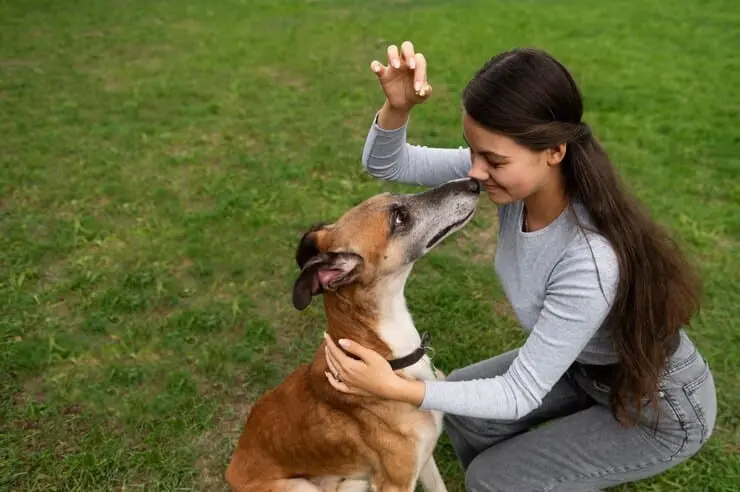
Responsible Ownership for a Pawsitive Relationship
New Mexico, like all states, prioritizes animal welfare through various laws and regulations:
- Animal Cruelty Laws: These laws define acts of cruelty against animals, encompassing physical harm, neglect, abandonment, and intentional infliction of suffering. They ensure dogs are treated with respect and provided for their basic needs.
- Tethering Laws: Some municipalities in New Mexico might have specific tethering laws regulating the duration and conditions under which a dog can be tethered outdoors. Unrestricted tethering can hinder human-dog bonding and negatively impact a dog’s well-being.
- Licensing and Identification (Optional): While not mandatory statewide, some municipalities require dog licenses and ID tags. These measures help reunite lost dogs with their owners, fostering a stronger human-dog bond by reducing the fear of permanent separation.
Building Positive Connections
Responsible ownership practices nurture the human-dog bond:
- Socialization: Socialization exposes your dog to different people, animals, and environments in a controlled and positive way. This fosters confidence and reduces fearfulness, laying the foundation for a strong and trusting relationship.
- Positive Reinforcement Training: Effective training methods that reward desired behaviors strengthen communication and understanding between you and your dog. This creates a positive association with human interaction.
- Exercise and Mental Stimulation: Providing your dog with adequate exercise and mental stimulation promotes overall well-being and reduces boredom, which can lead to destructive behaviors. Engaging activities like walks, playtime, and training sessions strengthen the human-dog bond.
Public Spaces and Dog-Friendly Initiatives
Many public spaces in New Mexico welcome well-behaved dogs on leash:
- Leash Laws: Most public spaces require dogs to be on a leash of a specific length, typically ranging from six to eight feet. Responsible leash use promotes safety for both dogs and humans, allowing for more interaction and shared experiences.
- Dog Parks: Numerous dog parks across New Mexico offer designated areas where dogs can socialize and play off-leash in a safe and controlled environment. These spaces encourage interaction between dogs and their owners while promoting positive human-dog experiences.
- Dog-Friendly Businesses: Many businesses in New Mexico welcome well-behaved dogs, allowing owners to enjoy outings and activities with their furry companions. This fosters a sense of inclusion and strengthens the human-dog bond through shared experiences.
Community Initiatives and Programs
Several community initiatives promote canine enrichment and human-dog interaction:
- Therapy Dog Programs: Therapy dogs provide comfort and emotional support to individuals in hospitals, nursing homes, and other settings. Participating in therapy dog training and volunteering can be a rewarding experience for both dog and owner.
- Dog Training Classes: Dog training classes offer a structured learning environment, supervised practice opportunities, and a chance to connect with other dog owners. These classes improve communication and understanding between dogs and their human companions.
- Volunteer Opportunities at Animal Shelters: Volunteering at shelters allows you to interact with dogs in need and contribute to their well-being. Socializing dogs and helping them prepare for adoption can be a fulfilling experience for both humans and dogs.
The Importance of Responsible Dog Ownership
Responsible dog ownership forms the foundation of successful human-dog coexistence:
- Proper Waste Management: Always clean up after your dog, regardless of location. Responsible waste management ensures shared public spaces remain safe and enjoyable for everyone, human and canine alike.
- Respecting Others: Be mindful of others when enjoying public spaces with your dog. Maintain control of your dog and respect the boundaries of others who might not be comfortable interacting with dogs.
- Advocacy for Dog-Friendly Policies: Support initiatives that promote responsible dog ownership and advocate for dog-friendly policies in public spaces and communities. This fosters a more inclusive environment for humans and dogs.
Other Relevant Dog Laws in New Mexico
Canine Good Citizen (CGC) Programs and Legal Benefits in New Mexico
- Canine Good Citizen (CGC) Programs: These programs offer training regimens certifying dogs that demonstrate basic obedience skills like walking on a leash politely, greeting people calmly, and coming when called.
- Potential Benefits: While not offering direct legal benefits in New Mexico, CGC certification might qualify your dog for discounts on pet insurance or entry into dog-friendly housing communities. More importantly, CGC training strengthens communication and promotes responsible pet ownership.
Dog Insurance and Coverage Laws in New Mexico
- Dog Insurance: Dog insurance is not mandatory in New Mexico, but it can offer financial protection for veterinary bills related to accidents or illnesses.
- Coverage Options: Dog insurance policies vary, covering accidents, illnesses, surgeries, and sometimes even alternative therapies. Research different plans to find one that meets your dog’s needs and your budget.
- No Legal Requirements for Coverage: There are no laws mandating specific coverage amounts, so choose a plan that provides the level of protection you feel comfortable with.
Laws Regarding Dogs in Hot Cars and Animal Endangerment in New Mexico
- Animal Cruelty Laws: New Mexico’s animal cruelty laws encompass leaving a dog unattended in a hot car, where it can suffer heatstroke or even death.
- Good Samaritan Laws: These laws generally offer some legal protection to individuals who take reasonable steps to rescue a dog in distress from a hot car, such as contacting animal control or breaking a window to access the animal (as a last resort).
- Prioritize Safety: Always prioritize the safety of the animal and yourself. If you see a dog in a hot car, call animal control immediately.
Legal Aspects of Dog Parks and Shared Spaces in New Mexico
- Leash Laws: Most public spaces in New Mexico require dogs to be on a leash, typically ranging from six to eight feet.
- Dog Park Regulations: Dog parks often have specific regulations regarding size limits, vaccination requirements, and responsible owner behavior. Always familiarize yourself with the rules before using a dog park.
- Shared Responsibility: Both dog owners and non-dog owners share responsibility for safety and respectful behavior in shared spaces. Owners should maintain control of their dogs, while others should be mindful of their fear of dogs.
Dog-Related Property Damage and Homeowner’s Insurance in New Mexico
- Homeowner’s Insurance: Most homeowner’s insurance policies cover liability for damage caused by your dog to another person’s property.
- Policy Coverage: Review your homeowner’s policy to understand the extent of coverage for dog-related damage. Consider increasing your liability coverage if you have a dog prone to chewing or jumping.
- Responsible Ownership: Proper training and socialization can significantly reduce the risk of your dog causing property damage.
Service and Working Dog Laws in Employment and Public Access in New Mexico
- Federal Laws: The Americans with Disabilities Act (ADA) protects the rights of individuals with disabilities to be accompanied by qualified service animals in public spaces.
- Definition of Service Animal: The ADA defines service animals as dogs specially trained to perform tasks for individuals with disabilities, such as guiding a visually impaired person or alerting someone with a seizure disorder.
- New Mexico Public Access Laws: New Mexico adheres to the ADA’s public access provisions for qualified service animals. Businesses and public entities cannot deny entry to individuals with service animals.
- Working Dogs vs. Service Animals: Working dogs like police K-9s or therapy dogs are not covered under the ADA’s public access rights. Their access typically requires permission from the establishment.
Animal Welfare and Protection Laws Against Neglect and Abandonment in New Mexico
- Animal Cruelty Laws: As mentioned earlier, New Mexico has animal cruelty laws in place that define neglect and abandonment as forms of cruelty.
- Neglect: Leaving a dog without adequate food, water, shelter, veterinary care, or socialization constitutes neglect.
- Abandonment: Intentionally abandoning a dog is illegal and can have serious consequences for the animal’s well-being.
- Reporting Requirements: Anyone suspecting animal neglect or abandonment is legally obligated to report it to animal control or law enforcement.
New Mexico prioritizes responsible pet ownership through various regulations, not just specific human-dog interaction laws. Understanding animal cruelty laws, licensing requirements, and leash laws ensures your dog’s well-being and protects the community. Responsible ownership extends to training, socialization, and utilizing dog-friendly resources. Following dog laws fosters a safe and enjoyable environment for both humans and canines. By prioritizing animal welfare and respectful coexistence, New Mexico dog owners can build strong bonds with their furry companions.
FAQs
Can I take my dog hiking in New Mexico?
Yes, many trails in New Mexico welcome leashed dogs. However, some areas might have specific regulations. Always check with the park or trail management for leash laws, breed restrictions (rare but possible), and any vaccination requirements before heading out with your canine companion.
What happens if my dog bites someone in New Mexico?
Leash laws and responsible ownership play a crucial role in preventing dog bites. If your dog bites someone, the severity of the consequences depends on the circumstances. In most cases, you’ll likely face fines and potentially be required to cover medical expenses for the bitten individual. Repeat offenses or bites causing serious injury might lead to stricter legal repercussions.
Are there any breed restrictions in New Mexico?
While uncommon, some municipalities in New Mexico might have breed-specific restrictions related to working dogs or potentially dangerous breeds. These restrictions are typically focused on behavior and not solely on breed. Always check with your local animal control department for any breed-related ordinances in your area.
Can I travel with my dog to New Mexico?
Yes, you can travel with your dog to New Mexico. However, vaccination requirements and health certificates might be necessary. Always check with New Mexico’s animal control department or relevant agricultural departments for the latest regulations on traveling with pets.
What resources are available for new dog owners in New Mexico?
Many resources are available for new dog owners in New Mexico:
Local Animal Shelters and Rescue Organizations: Shelters offer dog training classes, adoption counseling, and information on responsible pet ownership.
Veterinarians: Veterinarians provide essential healthcare for your dog and can advise on training, behavior, and responsible ownership practices.
Online Resources: The New Mexico Department of Agriculture or local animal control websites might offer resources on dog licensing, leash laws, and responsible ownership.

